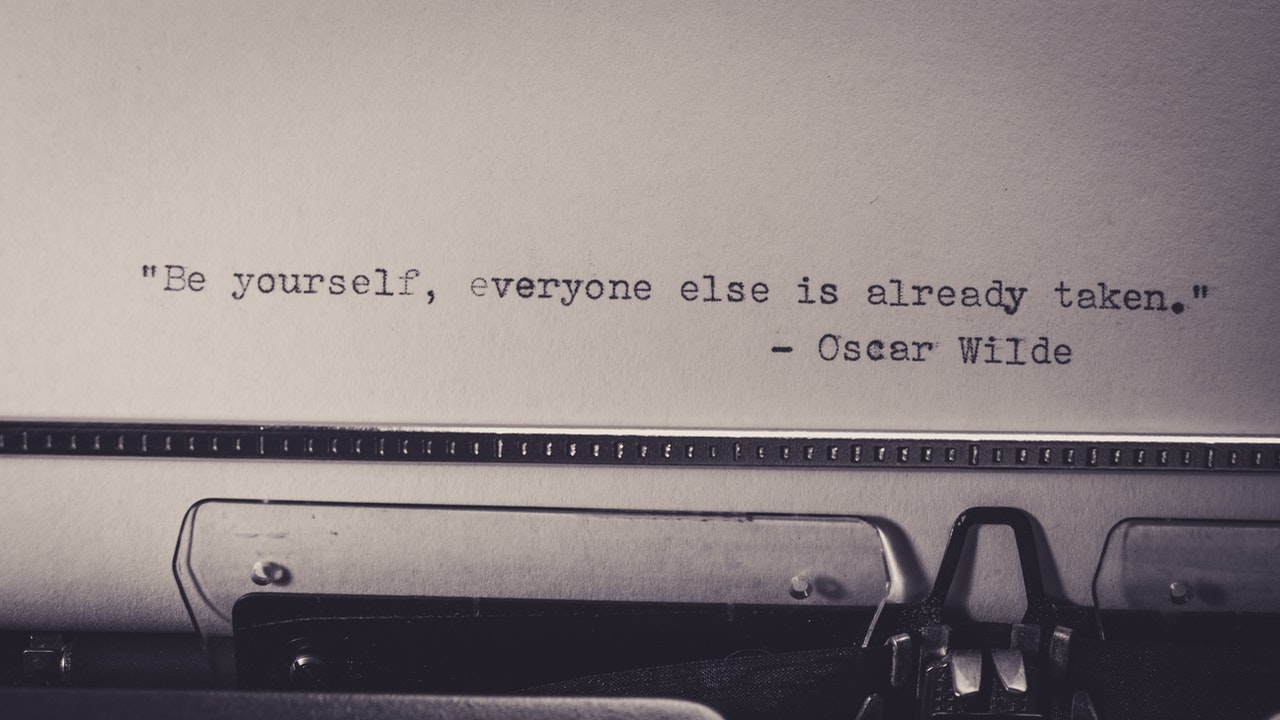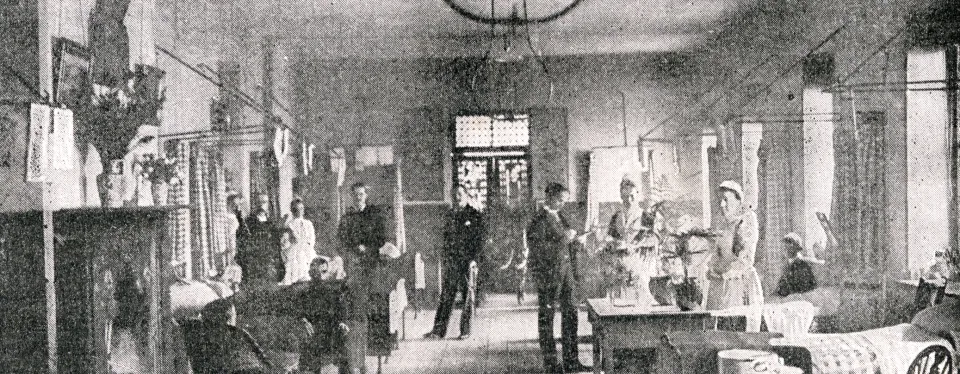

How to write a cover letter: Do's and don’ts
Let’s say you’ve already looked into writing a cover letter. You understand how to start a cover letter, how to format it, more or less what to include in a cover letter, and how to end a cover letter. You have plenty of tips and examples. You even have a professional email address to send it from.
Now you need a quick guide to dos and don’ts so you have a checklist you can look at to ensure you tick off all the right boxes and don’t make mistakes.
This is exactly what we have here: 10 dos and 10 don’ts that can help you on your way to crafting the perfect cover letter.
Customize Each Cover Letter: Tailor your cover letter to the specific job and company you're applying to, highlighting relevant experiences and skills.
Address it to the Right Person: Whenever possible, address your cover letter to the hiring manager or recruiter by name to add a personal touch.
Highlight Achievements: Use specific examples to highlight your achievements and contributions in previous roles, demonstrating your value to potential employers.
Research the Company: Familiarize yourself with the company's mission, values, and culture, and incorporate relevant information into your cover letter to show your interest and fit.
Proofread Carefully: Thoroughly proofread your cover letter for typos, grammatical errors, and clarity before submitting it, ensuring a polished and professional final product.
Keep it Concise: Aim for a cover letter that is clear, concise, and focused on the most relevant information, typically no longer than one page.
Show Enthusiasm: Express genuine enthusiasm and interest in the job opportunity and company, demonstrating your passion for the role and industry.
Follow Instructions: Adhere to any specific instructions provided in the job posting regarding format, submission method, or additional documents required.
Use a Professional Tone: Maintain a professional tone throughout your cover letter, avoiding slang, jargon, or overly casual language.
End with a Call to Action: Close your cover letter with a call to action, expressing your eagerness for an interview and inviting further discussion.
Don'ts
Use a Generic Template: Avoid using generic cover letter templates that lack personalization and fail to address the specific requirements of the job or company.
Focus Solely on Yourself: While it's important to highlight your qualifications, avoid solely focusing on yourself. Instead, emphasize how you can contribute to the company's success.
Exaggerate or Lie: Be truthful and honest in your cover letter, avoiding any exaggerations or false claims about your qualifications or experiences.
Rehash Your Resume: Your cover letter should complement your resume, not duplicate it. Avoid simply restating information from your resume and instead provide additional context and insights.
Include Irrelevant Information: Keep your cover letter focused on the job at hand and avoid including irrelevant details or experiences that do not directly relate to the position.
Use a Casual Tone: While you want to convey enthusiasm, avoid using overly casual language or slang in your cover letter, as it may come across as unprofessional.
Forget to Proofread: Neglecting to proofread your cover letter can result in embarrassing errors that detract from your professionalism and attention to detail.
Send Without Researching: Take the time to research the company and job position before writing your cover letter. Failing to do so may result in a generic and ineffective application.
Be Negative: Maintain a positive and optimistic tone throughout your cover letter, avoiding any negative comments about previous employers or experiences.
Leave Out Contact Information: Ensure your contact information is included in your cover letter, making it easy for potential employers to reach out to you for further discussion.
How do I write a good cover letter?
Write a good cover letter by customizing it to the job, highlighting achievements, addressing the hiring manager, and keeping it concise yet informative.
Where can I find resume cover letter examples?
You can find resume cover letter examples in all kinds of job related sites, blogs, and books. You can also check our guide on how to write a cover letter, which includes cover letter examples.
How can I get a free cover letter template?
If you want a template that sets up the format so you can just start filling it out, you can use programs like Microsoft Word and Google Docs, which have in-built cover letter templates.
Should I use a cover letter generator?
Using a cover letter generator can be helpful for formatting and structuring, but personalize the content to make it specific to the job and avoid writing a cover letter that sounds generic.
Can I use ChatGPT for a cover letter?
Yes, but you should understand how to use it. You can use ChatGPT to generate ideas, review drafts, and get feedback on your cover letter content. You shouldn’t actually write the cover letter using ChatGPT though, as it won’t sound like you and perhaps not even totally human.
Can I save a cover letter template in Google Docs?
Yes, you can save a cover letter template in Google Docs by creating a document, formatting it as desired, and then saving it to your Google Drive for future use.
Updated: April 23, 2024 at 2:25 PM
Published: April 2, 2024 at 4:58 PM
You might also like
How to change your email password.
A step-by-step guide on changing your email password on Gmail, Yahoo, Outlook, Thunderbird, iCloud, and Android and iOS devices.

Feb 20, 2024, 1:16 AM
Best Email Service for 2024
There are many email providers to choose from in 2024, including paid and free email services. Discover the best email accounts to consider.

Feb 15, 2024, 9:32 PM
- Dating | Relationships
- Family | Parenting | Kids
- Health | Wellness
- Home & Decor
- Personal Care
- Personal Growth & Development
- Technology | Media
- New Zealand
- South Korea
- Switzerland
- United Arab Emirates
- United Kingdom
- Bar / Pub / Club
- Convenience Foods
- Fine Dining
- Food Trucks
- Hawker Centre Fare
- International
- Malay / Muslim / Halal
- Middle Eastern
- South African
- Street Food
- Vegan / Vegetarian
- Baking & Roasting
- Bento / Lunchbox
- Dessert & Sweet Treats
- Drinks & Beverages
- Fish & Seafood
- Keto & Low Carb
- Miscellaneous
- Poultry & Meat
- Rice, Pasta & Noodles
- Salad & Vegetables
- Sandwich & Bread
- Snacks & Finger Foods
- Soups & Stews

Cover Letter Do’s and Don’ts: Common Mistakes to Avoid
Hey there, jobseekers! Ready to conquer the world of cover letters? If you’re reading this, you’re already on the right track. A well-crafted cover letter can be your golden ticket to landing that dream job. In this blog post, we’re going to dive into the do’s and don’ts of cover letter writing – and we promise, it’s going to be a fun ride!

Section 1: Cover Letter Do’s
1. do: tailor your cover letter to the job.
Imagine this: You’re at a party, and you want to impress someone. Would you use the same conversation starter for everyone? Of course not! The same goes for cover letters. Tailor your cover letter to the job you’re applying for.
Example: If you’re applying for a marketing position, highlight your marketing skills and experience. Don’t talk about your love for baking unless it’s somehow relevant to the job.
2. Do: Address It to a Specific Person
Dear Hiring Manager, does that sound personal to you? Nope. Address your cover letter to a real person. It shows you’ve done your homework.
Example: Instead of “Dear Hiring Manager,” go for “Dear Ms. Smith.” If you don’t know the name, try “Dear [Company Name] Hiring Team.”
3. Do: Start with a Strong Opening
You’ve got about 10 seconds to grab the recruiter’s attention, so don’t start with a snoozer. Make your opening sentence sizzle.
Example: Instead of “I am writing to apply for the position,” try “As a passionate marketer with a knack for boosting brand visibility…”

4. Do: Showcase Your Achievements and Skills
This is your time to shine! Don’t just list your job history; show them what you’re made of. Talk about your achievements and skills that match the job description.
Example: Instead of saying, “I have experience in marketing,” say “I’ve successfully increased website traffic by 50% through strategic marketing campaigns.”
5. Do: Show Enthusiasm for the Company
Recruiters love candidates who are genuinely excited about the company. Show them you’re not just looking for any job; you want this job.
Example: Mention the company’s recent accomplishments and how they align with your career goals. Be specific and sincere.
6. Do: Keep It Concise and Well-Organized
Recruiters don’t have time to read a novel. Keep your cover letter short and sweet, and use clear headings to organize your thoughts.
Example: Use short paragraphs, bullet points, and subheadings to make your cover letter easy to skim.
7. Do: Use Keywords from the Job Posting
Many companies use Applicant Tracking Systems (ATS) to screen resumes and cover letters. To pass the ATS, sprinkle in keywords from the job posting.
Example: If the job posting mentions “social media management,” use that exact phrase if it applies to your experience.

8. Do: Proofread and Edit Thoroughly
Typos and grammatical errors are like spinach stuck in your teeth during a job interview – embarrassing and avoidable. Proofread your cover letter carefully.
Example: Use online tools like Grammarly, and ask a friend to give it a once-over.
9. Do: Include a Call to Action
Don’t leave the recruiter hanging. End your cover letter with a clear call to action, indicating your eagerness to take the next step.
Example: “I would love the opportunity to discuss how my skills can contribute to [Company Name]’s success. Please contact me at [Your Email] or [Your Phone] to schedule an interview.”
10. Do: Be Authentic and Reflect Your Personality
While professionalism is key, don’t be a robot. Let your personality shine through a bit.
Example: If you’re a fan of the company’s recent charity work, say so. Show them you’re not just a great fit for the job but for the team culture too.
Section 2: Cover Letter Don’ts
1. don’t: use a generic template.
Recruiters can spot a generic cover letter from a mile away. Don’t be that person who sends the same letter to every job.
Example: Avoid using templates like, “I am writing to apply for the [Job Title] at [Company Name].”
2. Don’t: Address It as “To Whom It May Concern”
This is the equivalent of starting a conversation with, “Hey, you!” It’s impersonal and shows you didn’t put in the effort.
Example: Instead of “To Whom It May Concern,” research and find the hiring manager’s name or use “Dear [Company Name] Hiring Team.”
3. Don’t: Begin with a Bland Introduction
Starting with a yawn-inducing sentence won’t make you memorable.
Example: Skip the dull openings like, “I’m writing to express my interest in the position advertised on your website.”
4. Don’t: Reiterate Your Resume
Your cover letter isn’t a duplicate of your CV. It should complement it, not repeat it.
Example: Avoid saying, “As you can see on my resume, I worked at XYZ Company from 2018 to 2020.”
5. Don’t: Focus Solely on Yourself
It’s not all about you. Employers want to know how you can benefit them.
Example: Instead of, “I’m looking for a job where I can grow,” say, “I’m excited to contribute to [Company Name]’s growth.”
6. Don’t: Ramble or Include Irrelevant Information
A cover letter isn’t the place for your life story or unrelated details.
Example: Stay on point, and don’t mention personal hobbies that aren’t relevant to the job.

7. Don’t: Use Jargon or Overly Complex Language
Big words and jargon can confuse and alienate recruiters. Keep it simple and clear.
Example: Instead of “utilizing synergistic strategies,” say “using effective approaches.”
8. Don’t: Neglect Proofreading
Typos and errors can sabotage your chances. Don’t skip the proofreading step.
Example: Imagine sending a cover letter with “Dear Hiring Manger.” Ouch!

9. Don’t: Sound Desperate or Arrogant
Strike a balance between confidence and humility. Avoid sounding too needy or overly confident.
Example: Instead of, “I desperately need this job,” say, “I’m enthusiastic about joining your team.”
10. Don’t: Forget to Follow Up
Don’t ghost your potential employer. Follow up after submitting your application.
Example: Send a polite email a week or two after applying to express your continued interest.
There you have it, folks! With these do’s and don’ts in your back pocket, you’re well on your way to crafting a cover letter that’ll make recruiters sit up and take notice. Remember, it’s not just about ticking boxes; it’s about making a connection and showing why you’re the perfect fit for the job. So go ahead, write that stellar cover letter and land that dream job! Good luck out there!
Share this:
- Click to share on Facebook (Opens in new window)
- Click to share on Pinterest (Opens in new window)
- Click to share on Twitter (Opens in new window)
- Click to share on WhatsApp (Opens in new window)
- Click to share on Telegram (Opens in new window)
- Click to share on Reddit (Opens in new window)
Tags: application letter for employment job application letter writing a cover letter
Leave a Comment Cancel reply
Subscribe to our newsletter to receive the latest updates in your inbox
Enter Email Address
Trending Posts
- 50年 Taste of Tradition - Best Portuguese Egg Tarts in Singapore
- Bangkok Airport Rail Link - Getting from Central Bangkok to Suvarnabhumi Airport
- Moo Ping Recipe | Thai Grilled Pork Skewers
- A Taste of Taiwan: Exploring the Shilin Night Market
- One Day in Tamsui: What to See, Do and Eat in Taipei's Seaside District
- New Lane Hawker Centre | Lorong Baru | Penang
- AEON Tebrau City Food Court - Better than before!
- Albert Centre Wholesale Market @ Queen Street (Bugis)
- Kimberley Street Night Market | Penang
- A Bite of Tradition: Reviewing 一福堂 (Yi Fu Tang)
The Ultimate Guide to Cover Letter Dos and Don'ts
Introduction.
The importance of a well-crafted cover letter in the job search process cannot be overstated. With LinkedIn stating that cover letters are still relevant and crucial in the modern-day job search, understanding the dos and don'ts of cover letter writing is essential for job seekers to create compelling and successful applications. This article will provide clear and specific advice on what to include and avoid, as well as actionable tips and examples to guide you in crafting the perfect cover letter.
Through research and expert opinions, we will explore employer expectations for cover letters and how to meet those expectations. Whether you're a seasoned professional or a recent graduate, this guide will help you navigate the complexities of cover letter writing and increase your chances of landing that dream job.
Cover Letter Dos
To create an effective cover letter, job seekers must follow these essential dos:
- Tailor the cover letter to the specific position and company
- Showcase your unique personality and skills
- Sell yourself by highlighting your accomplishments and qualifications
- Demonstrate your knowledge of the company and industry
- Use a professional tone and proper formatting
By adhering to these guidelines, you will be well on your way to crafting a standout cover letter that catches the attention of hiring managers.
Cover Letter Don'ts
Avoiding these common don'ts will help your cover letter stand out for the right reasons:
- Generic salutations like "To Whom It May Concern"
- Submitting a generic cover letter for multiple positions
- Summarizing your resume instead of providing new information
- Making confessions about your shortcomings or lack of experience
- Exceeding one page in length
Steering clear of these pitfalls will ensure your cover letter leaves a positive impression on potential employers.
Tailoring Your Cover Letter
Customizing your cover letter for each position is crucial to demonstrate your genuine interest and relevance to the job. According to Coursera , your cover letter should be about a half page to one page long, or about 250 to 400 words. To tailor your cover letter effectively, consider the following steps:
- Research the company and job requirements
- Identify keywords and phrases to include
- Address the specific needs of the position and employer
- Highlight relevant skills and experiences
- Ensure your cover letter reflects the company culture
For example, if you're applying for a marketing position at a tech company, you might write:
"As a tech-savvy marketer with experience in driving user engagement through innovative social media campaigns, I was thrilled to see the opening for a Marketing Coordinator at XYZ Tech. I am confident that my passion for cutting-edge technology and proven track record in increasing brand awareness make me an ideal candidate for this role."
By tailoring your cover letter in this manner, you demonstrate your genuine interest in the position and company while showcasing your relevant skills and experiences.
Showcasing Your Personality
Letting your unique qualities shine through in your cover letter will help you stand out from other applicants. To effectively showcase your personality, consider the following tips:
- Use an engaging and authentic writing style
- Share anecdotes or personal stories
- Express your enthusiasm for the position and company
- Demonstrate your values and passions
- Avoid clichés and overused phrases
For instance, you might share a brief anecdote that highlights your creativity and problem-solving skills:
"When I was tasked with increasing our team's efficiency, I realized that our current project management system was outdated and cumbersome. I took the initiative to research and implement a new system that streamlined our workflow, resulting in a 25% increase in productivity. My colleagues appreciated my proactive approach, and our team's success reaffirmed my passion for finding innovative solutions to everyday challenges."
By incorporating your personality into your cover letter, you create a memorable impression on the hiring manager and increase your chances of being invited for an interview.
Selling Yourself
Effectively promoting your skills and achievements in your cover letter will demonstrate your value to potential employers. To successfully sell yourself, follow these guidelines:
- Highlight your most relevant accomplishments
- Quantify your success with numbers and metrics
- Showcase your transferable skills
- Discuss your potential impact on the company
- Provide examples of previous challenges and successes
For example, if you're applying for a sales position, you might write:
"In my previous role as a Sales Representative, I consistently exceeded my monthly quota by 15% and was recognized as the top performer for three consecutive quarters. My ability to build strong relationships with clients and identify their needs allowed me to generate $1.5 million in new business last year. I am confident that my sales expertise and customer-centric approach would make a significant impact on your company's growth."
By effectively selling yourself in your cover letter, you demonstrate your potential value to the employer and set yourself apart from other candidates.
Formatting and Length
A well-formatted and concise cover letter is more likely to be read and appreciated by potential employers. To ensure your cover letter meets these criteria, follow these tips:
- Use a clean and professional format
- Ensure your cover letter is easy to read with proper spacing and font size
- Limit your cover letter to one page
- Break up large blocks of text with bullet points or short paragraphs
- Proofread for errors and inconsistencies
According to Last Rewrite , proofreading your cover letter is a critical step in the job application process. By adhering to these formatting and length guidelines, your cover letter will be polished, professional, and more likely to catch the eye of hiring managers.
Common Mistakes and Phrases to Avoid
Being aware of and avoiding these common mistakes and phrases will help your cover letter stand out. Keep the following points in mind as you craft your cover letter:
- Overusing the word "I" and focusing too much on yourself
- Using weak openings and clichéd phrases
- Relying on empty buzzwords and jargon
- Making unsupported claims about your skills and accomplishments
- Copying and pasting content from your resume or other cover letters
For example, avoid starting your cover letter with generic and overused statements like:
"I am writing to apply for the position of Marketing Manager at your esteemed organization. I believe I am a perfect fit for this role because I am a hard worker, a team player, and a quick learner."
Instead, opt for a more engaging and tailored opening, such as:
"As a data-driven marketing professional with a proven track record of driving revenue growth, I was excited to discover the Marketing Manager opportunity at XYZ Company. Having admired your innovative approach to marketing, I am eager to contribute my expertise to help further elevate your brand's success."
By avoiding common mistakes and clichéd phrases, your cover letter will be more impactful and memorable to potential employers.
Understanding the dos and don'ts of cover letter writing is crucial for job seekers to create compelling and successful applications. By tailoring your cover letter, showcasing your personality, promoting your skills and accomplishments, and avoiding common mistakes, you can significantly improve your chances of catching the attention of hiring managers.
Remember that crafting an excellent cover letter is an ongoing process; continually refine and improve your cover letter as you learn and grow. By doing so, you increase your chances of job search success and take a significant step toward securing your dream job. Good luck in your job search journey!

Media Decision US
The 18 Do’s and Don’ts of Cover Letters Every Job Seeker Should Know
Posted: May 8, 2024 | Last updated: May 8, 2024

Most job seekers don’t spend nearly enough time working on their cover letters, assuming that their resume is enough to get them an interview. But when there is competition, a great cover letter can be the difference between getting an interview and getting passed over.
Your cover letter is your first impression when you’re applying for a new job, and it should be a good one. It’s also an opportunity to show your personality and demonstrate why you’re a perfect fit for the role.
Writing a cover letter can be a daunting task, but you can do a few simple things to make the process easier. Here are some easy do’s and don’ts that can help you write a great cover letter that will impress employers.

Sell Yourself
Like your resume, your cover letter is your chance to brag (professionally) about why they should hire you. Be proud of your skills and accomplishments, and use them to explain why you are the best candidate for the job.
When you sit down to write a cover letter, think about what will grab the hiring manager’s attention and make them want to learn more about you. What can you say about your skills and experience that will set you apart from the other candidates?
If you can, include specific examples of times when you have excelled in a similar role.

Answer the Question: Why Do You Want to Work Here?
You can be more human and personable in your cover letter than in your resume. So be sure to tell the reader why you want the job . This is especially true if you are making a career change or have been out of work for a while.
Briefly explain your situation so that the hiring manager doesn’t have any questions about why you’re applying.
For example, you can say something as simple as: “After ten years of working in office administration, I am interested in finding new challenges in the marketing industry.”

Address How You Meet the Needs of the Organization
There’s a reason most job applications require a resume and a cover letter. A cover letter gives you a chance to communicate with the organization and elaborate on your resume. It’s your opportunity to explain how you meet the organization’s needs and why you should be selected for an interview.
When writing a cover letter, it’s important to focus on how you can help the company reach its goals. You need to do your research to do this.
Find out the company’s goals and plans for achieving them. Then, craft a cover letter that demonstrates how your skills and experience can help the company succeed.
You can also use your cover letter to address some of the other job needs that may be difficult to include on your resume. These are things like having a driver’s license and access to a vehicle or details about your availability, such as when you can start.

Personalize Each Letter
Each employer should receive a personalized cover letter, but don’t worry! You can create one or two cover letter templates and tailor them for each job, just like you should do for your resume.
People still expect your cover letter to follow the formal letter format that includes the date, your name and contact information, and the company’s contact information. Be sure to update each cover letter so that it has the correct details and is addressed to the right person. Addressing your cover letter to the wrong person or sending the wrong letter with your resume probably won’t get a second look.
If you can’t find who to address the letter to, it’s better to use something generic like “hiring manager” or “hiring team” than the wrong name.

Keep it Short
Almost everyone will tell you that your cover letter must be one page. In most cases, this is great advice. Limiting yourself to one page helps you avoid repetition and really focus on what the hiring manager needs to know.
But the truth is, your cover letter should be as long as it needs to be.
I have been successful in submitting a two-page cover letter in the past. In this case, I was applying for a position that was actually two part-time jobs combined into one full-time job. The two roles were related but required different skills, so there was no way to address them all with a single-page cover letter.

Make sure your cover letter is free of spelling and grammatical errors. Use Grammarly (which is free) to catch spelling errors, grammar mistakes, and other language issues that you may overlook. This attention to detail will show the employer that you are taking the time to make sure that your letter is professional and that you are taking the job seriously.
Proofreading your own cover letter (and resume) can be difficult because you have likely read it so many times that you no longer see the mistakes. Having someone else take a look at it with fresh eyes can be helpful. In addition, they may be able to offer suggestions for improvements or point out information that is missing.

Get Their Attention Right Away
Almost every cover letter starts in the same boring way: “I am writing to apply for the [position] job at [company].” This does not tell the employer anything about you or why you are qualified for the job.
Instead, use the first paragraph to grab the employer’s attention and make them want to read more.
You can do a few things to make your first paragraph truly stand out:
- Tell them right away why you are qualified for the position. If you have work experience that matches the required qualifications, mention it first.
- Use strong, active language to engage the employer and show that you are enthusiastic about the position.
- Talk about your transferable skills, such as those you gained from previous jobs, volunteering, leadership roles, or your side hustle. Use specific examples to demonstrate how you have used these skills in the past and how they will help you succeed in the position you are applying for.
Starting your cover letter with a strong hook will immediately set you apart from other candidates and demonstrate your dedication and enthusiasm for the role.

Use Action Words
Use strong action words on your cover letter, such as: created, managed, oversaw, and implemented. These words will demonstrate your ability to take charge and get things done. Hiring managers are looking for candidates who can take the initiative and get the job done, so make sure to highlight your relevant experience and skills by using descriptive words .

Address Employment Gaps or Potential Concerns
Your cover letter is also an opportunity to explain any gaps in your employment history or to address any concerns that the employer might have about your candidacy. For example, if you took a few years off to raise your children, use your cover letter to explain how this has prepared you to return to the workforce and be an even better employee.

If you are out of work, don’t try to hide it. Employers may eventually discover the truth, so it’s better to be honest with them from the start.
Explain your situation briefly and focus on the positive – what you have been doing to stay busy and how you are excited to put your skills to use in a new role. Honesty is always the best policy, and employers will appreciate your transparency.

Don’t Repeat Your Resume
Now that you know what you should be doing on your cover letter, let’s talk about some of the things you need to avoid.
Your cover letter is meant to elaborate on your resume, not repeat it. If it doesn’t tell us anything more than your resume already does, why are you even bothering to write one?
Hiring managers don’t want to read the same information twice. They want to see how you can add value to their organization, not just a list of your past accomplishments.
Use your cover letter to talk about your skills and experience in a more natural way. Expand on what you want an employer to know about yourself and your application.

Don’t Be Negative
If you are applying for a new job, you are either unemployed or underemployed, hate your current job , or are worried that you may be about to lose it. None of these situations are fun to be in, but you can’t let that show in your cover letter. You have to keep it positive!
You want to show the employer that you are excited about the opportunity and are confident in your ability to do the job.
If you hate your current job, focus on how you are looking for a new challenge and how you believe this job will be a better fit for you. Or, if you are worried you may lose your job, focus on how you are proactive and are already looking for new opportunities.

Don’t Discuss Why You Need the Job
Everyone knows that you need a job to make money to support yourself and your family. You don’t need to explain this or the details of your specific situation in your cover letter. Mentioning that you are hoping to buy a new house next year doesn’t matter to an employer.
What does matter to an employer is what you can do for them. They want to know how you will:
- make their company more money
- save them money
- make their company more efficient
- help them to avoid potential problems
In your cover letter, focus on what you can do for the employer, not on what they can do for you.

Don’t Make Excuses
Making excuses will only draw more attention to your weaknesses or make you sound like a difficult person to work with.
If you don’t meet 100% of the qualifications they are looking for, that’s okay – just don’t point it out! Let them decide if it’s a deal-breaker or if they are willing to train you in that specific area. They might not even notice!
Avoid making excuses for past job experiences or choices that might negatively reflect on you. If you were fired from a job, for example, simply state that the job wasn’t a good fit and move on. Don’t try to justify your actions or make excuses—this will only make you look bad.

Don’t Lie Or Exaggerate
Many people feel the temptation to lie or exaggerate their skills and experience when applying for a new job. Although lying on your application may seem like a harmless way to make yourself look more qualified, it can lead to serious consequences.
When an employer is interested in hiring you, they will conduct a background check and call your references. If you’re caught lying on your job application, you will likely be immediately disqualified. In some cases, you may even be banned from applying to that company in the future.
Lying on your application can also be a form of fraud, which is a crime in many jurisdictions. Depending on the severity of the lie, you could lose your job, be sued, or even be prosecuted for falsifying documents.
Lying or exaggerating about your experience or education can also lead to problems down the road if you are hired for a position based on false information. For example, if you claim you are proficient at using a specific program that you don’t really know much about, you will struggle in your new role. Not being able to do your job will be stressful and raise questions with your employer. Unless you’re a quick learner, you will probably find yourself job searching again within a few months.
So, the next time you’re tempted to fudge the truth on your application, remember the potential consequences. Be honest on your applications, and you’ll be much better off in the long run.

Don’t Send a Generic Letter
As mentioned, your cover letter should be unique to each employer and job opportunity. Don’t simply copy and paste the same letter for every job application. A few small tweaks are all you need to make your cover letter specific to each job and increase your chances of getting an interview.
If it’s obvious that you’ve created one cover letter and are using it repeatedly to apply to dozens of jobs, it gives the impression that you don’t really care if you get this job or not – you just want any job. And while that may be true, you don’t want to create any apprehension with an employer.

Don’t Use Clichés or Slang Terms
Avoid using clichés, slang, and overly casual language when writing a cover letter. Such language can come across as unprofessional and may not convey the message you are trying to get across in the best way possible.
Clichés include phrases like “I’m a people person” or “I’m a go-getter.” These phrases are overused and do not add anything unique to your letter.
Using slang can give the impression that you are not taking the process seriously. It can also make it difficult for the reader to understand what you are trying to say. Instead, focus on using clear and concise language, which will get your point across in a way that is both professional and respectful.
While it is important to be friendly and personable in your letter, being too casual can make you seem unprofessional and could hurt your chances of getting the job.

Don’t Include Unnecessary Personal Information
There are a few reasons why you should not include personal information in your cover letter. First, it is not necessary. The employer is only interested in your qualifications and not your personal life.
Second, while it may seem like a good idea to make yourself seem more relatable, including personal information can actually have the opposite effect. It can make you appear unprofessional.
Third, including personal information on your cover letter can be a privacy concern. If an employer knows too much about your personal life, they could potentially use this information against you. For example, if you mention that you have young children, the employer may assume that you will need to take time off for childcare. As a result, you may be passed over in favor of a candidate without the same responsibilities.
Lastly, sharing personal information in your cover letter could also lead to identity theft. If you include your home address or phone number, a savvy thief could use this information to steal your identity. By including personal information in your cover letter, you could be putting yourself at risk.
Overall, you should always err on the side of caution to protect your privacy. Stick to the facts and let your qualifications speak for themselves.

Cover Letters Are Tricky But Beneficial
It can be difficult to strike the right tone in a cover letter. You want to sound enthusiastic and professional without coming across as desperate or pushy. The goal is to show that you’re a good fit for the company, so focus on that.
If you’re not sure how to get started, plenty of cover letter examples are available online. Just make sure to tailor the letter to the specific company and position you’re applying for, and only include the skills and experience that you actually have.
With these tips, you should have no problem creating a cover letter that will stand out and help you get hired.

Quick Resume Tips
If you want to make a good impression and stand out from the competition, here are 20 resume do’s and don’ts . Following these simple tips, you can be sure that your resume will make a great impression on employers.

Add Your Side Hustle to Your Resume
Job seekers are told they need to stand out if they want to get hired. But how? One of the easiest ways is to include their side hustle on their resumes . Your side hustle is teaching valuable job skills that can make you a stronger candidate. Not mentioning this on your resume or cover letter is a mistake!
More for You
'Star Wars' Actress Amandla Stenberg's 'White People' Remark Sparks Fury
Fact Check: Online Rumor Claims Reba McEntire Stormed Off 'The Voice' After Producers Kicked Her Off the Show. Here Are the Facts
Team USA Finalizes Olympics Roster After Caitlin Clark Decision
The Only Major Actors Still Alive From All In The Family
Taylor Swift: 26 Surprising Facts About the Pop Icon
The Biden administration has finalized a controversial new retirement rule — here are 5 things you need to know now
Watch a grandpa's surprise when his grandson restores his 40-year-old truck
The Top 3 Foods That Cause Poor Gut Health, According to a Dietitian
Shark Tank’s Kevin O’Leary on CEO vs worker pay
‘9-1-1: Lone Star' May Be Coming To An End; Original Cast Member Exits Fox Drama Ahead Of Season 5
“He’s the greatest weapon the Navy’s ever produced”: Glen Powell Was Sold on What Tom Cruise and Team Thought About Him After Turning Down Top Gun 2
A millennial couple bought an abandoned cottage for half the price of nearby houses. It's a major fixer-upper, but it's worth it.
'Putting our girls at risk': Biden's Title IX changes challenged by nearly 70 GOP lawmakers
A nutritionist shares her simple diet for optimal health—'I'm not trying to be the most creative person on Earth'
Nearly half of master’s degree programs leave students financially worse off—and just one subject results in a starting salary over $100k
Pentagon Alarmed as China Poaches America's 'Top Guns'
“Young and the Restless” Star Kristoff St. John’s Struggles Are Examined in New Documentary — Watch the Trailer (Exclusive)
‘It’s an obvious move’: Elon Musk says Warren Buffett should buy Tesla stock — Berkshire already even owns a stake in its top competitor
The 12 Smartest Cat Breeds That Are Equally Cute and Clever
Experts Say These Are The 5 Worst Foods For Your Cholesterol
The Dos and Don’ts of Writing the Perfect Cover Letter
Hiring managers are tasked with reviewing hundreds of cover letters and resumes each day, which leaves little time to truly get to know the candidates they are interested in talking to about an open position.
Because of this, it is critical that you make the very best first impression you can in your cover letter—which means following some dos and don’ts of writing the perfect cover letter so that yours stands out from the pack.
What Is a Cover Letter?
A cover letter is a marketing tool for your resume . It highlights who you are as a candidate, what soft skills you have to offer , and why this job would be a good fit for you. It generally supports the resume , so it should not introduce any new points that weren’t mentioned in it.
A cover letter can be an important part of your application process, especially if you are going after an internship or entry-level job. And no matter what kind of job you are applying for, there are some basic rules to cover letter writing that will help you stand out and make sure that you get the job you want !

The Dos and Don’ts of Writing the Perfect Cover Letter
In the section below, we’ll go over the dos and don’ts of writing the perfect cover letter so that you can apply for jobs with confidence and increase your chances of getting hired !
1. Do: Tailor your cover letter to every job you apply for.
The first part includes knowing what each company wants to hear. Research and identify what the company needs. This will be an opportunity to show how your skills match what is needed for the position you are applying for.
The second part is about staying true to yourself but still tailoring your cover letter to each job. With a targeted cover letter, there is a much higher chance that you’ll be noticed among a stack of hundreds.
You can also share how you found out about the position and how you would like to help solve the problem it presents. Be sure to mention any relevant experience from previous jobs or internships that aligns with this new opportunity, as well as any qualifications from education-related activities such as research, thesis papers, co-curricular activities and other extracurricular projects/programs that are related to your field of study ( to demonstrate knowledge ).
Include a summary statement highlighting what skillset is necessary for success in this position (while also mentioning why it would be advantageous for you personally) and reiterate why you are qualified for the role based on what was mentioned before.
Here are some points to remember to ensure your cover letter is tailored for the specific job:
- Your cover letter should be customized with skills or past projects relevant to the job. Make sure these showcase your experience.
- Refer to the posting and make sure it reflects the company’s needs.
- If you are interested in multiple jobs, it may not be a bad idea to tailor individual cover letters for each one based on the requirements listed on their posting(s).
- Share any additional information not included in your resume that might help with selecting you as the best candidate, such as projects completed or certificates obtained.
2. Do: Keep it short, professional, and positive.
Begin your cover letter by addressing the company in a greeting, such as Dear Sir or Madam. And then, include a line about how you found their listing (i.e., through LinkedIn).
Next, state why you are interested in the job. You can mention anything that you can do for them, your skills, qualifications, how you meet their requirements, what sets you apart from other applicants, or why they should hire you.
Also, include an ending line that lets them know that they can reach out to learn more or set up an interview if they would like to get to know more about your work and qualifications better. Be courteous when providing information about yourself and offer appreciation at the end of your letter.

3. Do: Use appropriate business email etiquette.
The email should be addressed to the right person. In this case, it is usually the hiring manager. Even if you don’t know that person’s name, be sure to use Dear Sir or Madam as a generic address. If you are corresponding with a woman who uses her maiden name at work, then you might want to address her as Ms Last Name.
Remember to include your full name at the top of your email message, followed by your contact information, such as your job title, company, and phone number, all in one sentence.
It also helps to include an introductory paragraph about yourself. For example, “I am writing to express my sincere interest in the open SEO content writer position.”
4. Do: Discuss your skills.
Determine your biggest, most important skill . Discuss how you learned this skill (i.e., through school or work). Did you like it? If not, why not?
You can also discuss why you want to work for this company, even if it doesn’t seem like a perfect fit at first glance. What do they do that excites you? How can they improve your skillset? Why is this opportunity attractive to you as opposed to others out there?
Mention how your skills will add value to the company’s mission or goals. Do your research here! What does the company need in terms of skills in order to grow? Consider these needs when framing your responses about what you have to offer them.
5. Do: Explain how you can help .
Every organization has different needs that are usually made clear in a job description. If you are not sure how you can help the company, start by looking at its website, and social media accounts to get a sense of its current projects or needs.
From there, it is just a matter of following these steps:
- Reflect on your skills (including experience, certifications, etc) that are related to the position.
- Explain why this opportunity is important to you as it aligns with your goals in life or career-wise.
- Explain how it would make sense for you to bring these skills into this particular opportunity in detail.
- End with a statement about why you are excited about the opportunity. You might also want to ask any questions that come up while reviewing the details of the role/company.
6. Do: Proofread before sending.
In a world that relies heavily on digital communication , it is tempting to send your resume without proofreading.
However, doing so is more likely to result in an immediate rejection. The person who may be reading your cover letter might not even bother reading past spelling errors or grammatical mistakes.
To avoid this common mistake, take some time to make sure you’ve revised your document before sending it out. Make sure there are no misspellings, grammar mistakes, formatting issues or other distractions for the person reading your application.
Proofread your letter at least twice before submitting it. Make sure to check for errors in spelling, grammar, and punctuation. Hiring managers pay attention to those things!
If you are still feeling unsure about any aspect of your cover letter, ask someone whose opinion you respect or look up a sample cover letter online. (We will discuss this further in the next part.) Paying attention to these aspects will make all the difference in how much weight your application carries.
Remember that hiring managers want to hire the best person for the job; so be your best self by writing a stellar cover letter!

7. Do: Get someone else to read over your cover letter
Getting someone else to read over your cover letter can help identify any inconsistencies or issues with flow. Once you are confident that it is in its best shape, print it out to get a feel for formatting and look. Try looking at it on different types of paper: white paper, ivory, and yellow.
Consider printing them on professional-grade resume paper if you want to really make an impression. There is nothing worse than getting called in for an interview, only to find that their resume was printed off of a laser printer.
Many candidates show up with resumes photocopied onto regular copy paper before, and they definitely lost points with recruiters. The format should be clean without clutter, so keep photos and designs away from the page margins as much as possible.
8. Do: Use a Cover Letter Builder
Use a cover letter builder to create a professional cover letter in minutes. All you need to do is enter your contact information, upload your resume, choose a theme, and write a few sentences about why you are the best candidate for the job.
Even if it is only temporary work or volunteer work, it will show that you are eager to learn new skills and have an interest in improving your standing as an employee.
Additionally, even if there are ready-made templates for you, always be sure to include all relevant skills like typing speed, data entry experience, customer service experience , foreign language fluency—anything that makes you stand out from other applicants.
The more qualifications you can show potential employers without physically sending them your resume (which is limited to only one page), the better chance you’ll have of getting hired!
9. Don’t: Include irrelevant information.
It is crucial to take some time before submitting your application materials to think about what the company is asking for specifically so you can tailor your cover letter accordingly.
Remember, an employer wants someone who will be able to do the work they need to be done in order to fulfil their mission. So, if you don’t have any experience in certain areas, it may be best not to mention anything about them at all!
10. Don’t: Repeat all information from your resume .
Don’t just rehash everything from your resume. Your cover letter is an opportunity to show you are a great fit for this role in a new way.
Use this opportunity to show off some personality—give them something fun or thought-provoking, like why ____ are your best skill sets for the job, what accomplishment makes you most proud, or even how a weakness you once had turned into a strength.
Start with a compliment that reflects how well they did their job. For example, “I’m not sure if there was ever any question I was going to be the perfect fit.” End by saying what excites you about taking on this position, such as “I can’t wait to begin.”

11. Don’t: Use generic language.
Keep sentences short and concise by using simple words. Never use three words when one suffices.
When writing a cover letter for any job opportunity, you want to demonstrate professionalism and attention to detail. One way to do this is by using proper English grammar and syntax throughout your documents–not relying on shortcuts like LOL or WTF .
If you are unsure how to spell a word, just type it into Google and see what comes up. Text speak is distracting and unprofessional, and it will only create barriers between you and your potential employer.
When applying for an entry-level position, don’t use the word respectfully at the beginning of your cover letter. Respect is assumed and unnecessary.
12. Don’t: Include too much personal information.
You don’t need to reveal everything about yourself in order to write a good cover letter. While personal details can sometimes give employers insight into who you are as a person, they can also reveal information that could be inappropriate or considered discriminatory (such as ethnicity).
It is important to strike the right balance when including personal details about yourself; just make sure what you include won’t exclude you from consideration for employment opportunities because of sensitive topics like religion or ethnicity.
13. Don’t: Use too many keywords.
When writing a cover letter, it is important to avoid keywords that can show your inexperience. Words like executive, C-level, or board member are better suited for those with more than five years of experience.

14. Don’t: Focus on what the job can do for you.
What employers don’t want to see on your cover letter: a sentence that starts with I need, I am looking for, or I want.
They are not interested in what you need or what you are looking for, they are interested in what you can do for them. Talk about how excited you are to learn more about their company, and mention specific things that interest you and why.
What employers DO want to see on your cover letter: a concise summary of why you’re qualified for the position. Again, focus on your qualifications rather than discussing salary requirements (they’ll always ask), relocation expenses (useful if travel is involved), etc. And don’t forget to include contact information at the end!
15. Don’t: Lie on your resume.
Your resume should always be honest because if someone ever finds out that you lied about it, it could not only jeopardize your career prospects at this company but also any future ones with other companies.
16. Don’t: Give up on finding the perfect job!
Most importantly, don’t apply for a job unless you really want it! Just because the position seems like a good fit doesn’t mean it is. If you don’t care about the organization, your application won’t stand out from any other applicant who has no passion for the role.
If you are not interested in learning more about their company culture, don’t waste their time or yours. And only apply for jobs that meet your qualifications (both education-wise and experience-wise), so you’re not wasting anyone’s time applying to positions that are beyond your abilities.

Get That Dream Job with the Perfect Cover Letter
Writing the perfect cover letter can seem like an insurmountable task, but it is actually quite simple if you follow these dos and don’ts:
- Do: Tailor your cover letter to every job you apply for.
- Do: Keep it short, professional, and positive.
- Do: Use appropriate business email etiquette.
- Do: Discuss your skills.
- Do: Explain how you can help.
- Do: Proofread before sending.
- Do: Get someone else to read over your cover letter.
- Do: Use a Cover Letter Builder.
- Don’t: Include irrelevant information.
- Don’t: Repeat all information from your resume.
- Don’t: Use generic language.
- Don’t: Include too much personal information.
- Don’t: Use too many keywords.
- Don’t: Focus on what the job can do for you.
- Don’t: Lie on your resume.
- Don’t: Give up on finding the perfect job!
Understand what makes the perfect cover letter by learning the dos and don’ts of writing the perfect cover letter. Soon, you should get that most awaited YES!
Disclaimer . The views and opinions expressed here are those of the authors. They do not purport to reflect the opinions or views of IdeasPlusBusiness.com. Any content provided by our bloggers or authors is of their opinion and is not intended to malign any organization, company, individual, or anyone or anything.
For questions, inquiries and advert placements on the blog, please send an email to the Editor at ideasplusbusiness[at]gmail[dot]com . You can also f ollow IdeasPlusBusiness.com on Twitter here and like our page on Facebook here . This website contains affiliate links to some products and services. We may receive a commission for purchases made through these links at no extra cost to you.
Dahlia Keen is passionate about helping people find meaningful work in a career they enjoy. A creative writer for resumekit.com, she is backed by years of experience using an online resume maker to craft resumes for diverse industries, and she has helped hundreds of professionals land their dream job.
The Importance of a Color Story in Your Campaigns
Simple Tips to Sell More Products on Your Affiliate Marketing Website

About IdeasPlusBusiness.com
Adeyemi Adetilewa is the Editor-in-Chief of IdeasPlusBusiness.com. We are interested in AI, Cyber Security, Digital Marketing, and Information Technology. Our goal on IdeasPlusBusiness.com is to give you the best in business, technology, and marketing articles from top experts worldwide.
- One Park Financial Business Loans Reviews [2024 Update!]
- What Do You Wear For A Coffee Interview? 12 Simple Tips for Men and Women
- What is an Amazon Liquidation Store? How to Get Incredible Deals!
- How to Buy Amazon Return Pallets? 7 Top Tips From Experts!
- 7 Stages of a New Digital Product Development Process
© 2024 IdeasPlusBusiness.com
How to Write a Cover Letter [Full Guide & Examples for 2024]

After weeks of heavy job searching, you’re almost there!
You’ve perfected your resume.
You’ve short-listed the coolest jobs you want to apply for.
You’ve even had a friend train you for every single interview question out there.
But then, before you can send in your application and call it a day, you remember that you need to write a cover letter too.
So now, you’re stuck staring at a blank page, wondering where to start...
Don’t panic! We’ve got you covered. Writing a cover letter is a lot simpler than you might think.
In this guide, we’re going to teach you how to write a cover letter that gets you the job you deserve.
We're going to cover:
What Is a Cover Letter?
- How to Write the Perfect Cover Letter, Step by Step
- 15+ Job-Winning Cover Letter Examples
Let’s get started.
A cover letter is a document that you submit as part of your job application, alongside your resume or CV.
The purpose of a cover letter is to introduce you and briefly summarize your professional background. On average, it should be around 250 to 400 words long .
A good cover letter is supposed to impress the hiring manager and convince them you’re worth interviewing as a candidate.
So, how can your cover letter achieve this?
First of all, it should complement your resume, not copy it. Your cover letter is your chance to elaborate on important achievements, skills, or anything else that your resume doesn’t give you the space to cover.
For example, if you have an employment gap on your resume, the cover letter is a great place to explain why it happened and how it helped you grow as a person.
If this is your first time writing a cover letter, writing about yourself might seem complicated. But don’t worry—you don’t need to be super creative or even a good writer .
All you have to do is follow this tried and tested cover letter structure:

- Header. Add all the necessary contact information at the top of your cover letter.
- Formal greeting. Choose an appropriate way to greet your target audience.
- Introduction. Introduce yourself in the opening paragraph and explain your interest in the role.
- Body. Elaborate on why you’re the best candidate for the job and a good match for the company. Focus on “selling” your skills, achievements, and relevant professional experiences.
- Conclusion. Summarize your key points and wrap it up professionally.
Now, let’s take a look at an example of a cover letter that follows our structure perfectly:

New to cover letter writing? Give our cover letter video a watch before diving into the article!
When Should You Write a Cover Letter?
You should always include a cover letter in your job application, even if the hiring manager never reads it. Submitting a cover letter is as important as submitting a resume if you want to look like a serious candidate.
If the employer requests a cover letter as part of the screening process, not sending one is a huge red flag and will probably get your application tossed into the “no” pile immediately.
On the other hand, if the job advertisement doesn’t require a cover letter from the candidates, adding one shows you went the extra mile.
Putting in the effort to write a cover letter can set you apart from other candidates with similar professional experience and skills, and it could even sway the hiring manager to call you for an interview if you do it right.
Need to write a letter to help get you into a good school or volunteer program? Check out our guide to learn how to write a motivation letter !
How to Write the Perfect Cover Letter
Now that you know what a cover letter is, it’s time to learn how to write one!
We’ll go through the process in detail, step by step.
#1. Choose the Right Cover Letter Template
A good cover letter is all about leaving the right first impression.
So, what’s a better way to leave a good impression than a well-formatted, stylish template?

Just choose one of our hand-picked cover letter templates , and you’ll be all set in no time!
As a bonus, our intuitive AI will even give you suggestions on how to improve your cover letter as you write it. You’ll have the perfect cover letter done in minutes!

#2. Put Contact Information in the Header
As with a resume, it’s important to start your cover letter with your contact details at the top. These should be in your cover letter’s header, separated neatly from the bulk of your text.

Here, you want to include all the essential contact information , including:
- Full Name. Your first and last name should stand out at the top.
- Job Title. Match the professional title underneath your name to the exact job title of the position you’re applying for. Hiring managers often hire for several roles at once, so giving them this cue about what role you’re after helps things go smoother.
- Email Address. Always use a professional and easy-to-spell email address. Ideally, it should combine your first and last names.
- Phone Number. Add a number where the hiring manager can easily reach you.
- Location. Add your city and state/country, no need for more details.
- Relevant Links (optional). You can add links to websites or social media profiles that are relevant to your field. Examples include a LinkedIn profile , Github, or an online portfolio.
Then it’s time to add the recipient’s contact details, such as:
- Hiring Manager's Name. If you can find the name of the hiring manager, add it.
- Hiring Manager's Title. While there’s no harm in writing “hiring manager,” if they’re the head of the department, we recommend you use that title accordingly.
- Company Name. Make sure to write the name of the company you're applying to.
- Location. The city and state/country are usually enough information here, too.
- Date of Writing (Optional). You can include the date you wrote your cover letter for an extra professional touch.

#3. Address the Hiring Manager
Once you’ve properly listed all the contact information, it’s time to start writing the content of the cover letter.
The first thing you need to do here is to address your cover letter directly to the hiring manager.
In fact, you want to address the hiring manager personally .
Forget the old “Dear Sir or Madam” or the impersonal “To Whom It May Concern.” You want to give your future boss a good impression and show them that you did your research before sending in your application.
No one wants to hire a job seeker who just spams 20+ companies and hopes something sticks with their generic approach
So, how do you find out who’s the hiring manager?
First, check the job ad. The hiring manager’s name might be listed somewhere in it.
If that doesn’t work, check the company’s LinkedIn page. You just need to look up the head of the relevant department you’re applying to, and you’re all set.
For example, if you’re applying for the position of Communication Specialist at Novorésumé. The hiring manager is probably the Head of Communications or the Chief Communications Officer.
Here’s what you should look for on LinkedIn:

And there you go! You have your hiring manager.
But let’s say you’re applying for a position as a server . In that case, you’d be looking for the “restaurant manager” or “food and beverage manager.”
If the results don’t come up with anything, try checking out the “Team” page on the company website; there’s a good chance you’ll at least find the right person there.
Make sure to address them as Mr. or Ms., followed by their last name. If you’re not sure about their gender or marital status, you can just stick to their full name, like so:
- Dear Mr. Kurtuy,
- Dear Andrei Kurtuy,
But what if you still can’t find the hiring manager’s name, no matter where you look?
No worries. You can direct your cover letter to the company, department, or team as a whole, or just skip the hiring manager’s name.
- Dear [Department] Hiring Manager
- Dear Hiring Manager
- Dear [Department] Team
- Dear [Company Name]
Are you applying for a research position? Learn how to write an academic personal statement .
#4. Write an Eye-Catching Introduction
First impressions matter, especially when it comes to your job search.
Hiring managers get hundreds, sometimes even thousands, of applications. Chances are, they’re not going to be reading every single cover letter end-to-end.
So, it’s essential to catch their attention from the very first paragraph.
The biggest problem with most opening paragraphs is that they’re usually extremely generic. Here’s an example:
- My name is Jonathan, and I’d like to work as a Sales Manager at XYZ Inc. I’ve worked as a Sales Manager at MadeUpCompany Inc. for 5+ years, so I believe that I’d be a good fit for the position.
See the issue here? This opening paragraph doesn’t say anything except the fact that you’ve worked the job before.
And do you know who else has similar work experience? All the other applicants you’re competing with.
Instead, you want to start with some of your top achievements to grab the reader’s attention. And to get the point across, the achievements should be as relevant as possible to the position.
Your opening paragraph should also show the hiring manager a bit about why you want this specific job. For example, mention how the job relates to your plans for the future or how it can help you grow professionally. This will show the hiring manager that you’re not just applying left and right—you’re actually enthusiastic about getting this particular role.
Now, let’s make our previous example shine:
Dear Mr. Smith,
My name’s Michael, and I’d like to help XYZ Inc. hit and exceed its sales goals as a Sales Manager. I’ve worked as a Sales Representative with Company X, another fin-tech company , for 3+ years, where I generated an average of $30,000+ in sales per month and beat the KPIs by around 40%. I believe that my previous industry experience, passion for finance , and excellence in sales make me the right candidate for the job.
The second candidate starts with what they can do for the company in the future and immediately lists an impressive and relevant achievement. Since they’re experienced in the same industry and interested in finance, the hiring manager can see they’re not just a random applicant.
From this introduction, it’s safe to say that the hiring manager would read the rest of this candidate’s cover letter.
#5. Use the Cover Letter Body for Details
The next part of your cover letter is where you can go into detail about what sets you apart as a qualified candidate for the job.
The main thing you need to remember here is that you shouldn’t make it all about yourself . Your cover letter is supposed to show the hiring manager how you relate to the job and the company you’re applying to.
No matter how cool you make yourself sound in your cover letter, if you don’t tailor it to match what the hiring manager is looking for, you’re not getting an interview.
To get this right, use the job ad as a reference when writing your cover letter. Make sure to highlight skills and achievements that match the job requirements, and you’re good to go.
Since this part of your cover letter is by far the longest, you should split it into at least two paragraphs.
Here’s what each paragraph should cover:
Explain Why You’re the Perfect Candidate for the Role
Before you can show the hiring manager that you’re exactly what they’ve been looking for, you need to know what it is they’re looking for.
Start by doing a bit of research. Learn what the most important skills and responsibilities of the role are according to the job ad, and focus on any relevant experience you have that matches them.
For example, if you’re applying for the position of a Facebook Advertiser. The top requirements on the job ad are:
- Experience managing a Facebook ad budget of $10,000+ / month
- Some skills in advertising on other platforms (Google Search + Twitter)
- Excellent copywriting skills
So, in the body of your cover letter, you need to show how you meet these requirements. Here’s an example of what that can look like:
In my previous role as a Facebook Marketing Expert at XYZ Inc. I handled customer acquisition through ads, managing a monthly Facebook ad budget of $40,000+ . As the sole digital marketer at the company, I managed the ad creation and management process end-to-end. I created the ad copy and images, picked the targeting, ran optimization trials, and so on.
Other than Facebook advertising, I’ve also delved into other online PPC channels, including:
- Google Search
Our example addresses all the necessary requirements and shows off the candidate’s relevant skills.
Are you a student applying for your first internship? Learn how to write an internship cover letter with our dedicated guide.
Explain Why You’re a Good Fit for the Company
As skilled and experienced as you may be, that’s not all the hiring manager is looking for.
They also want someone who’s a good fit for their company and who actually wants to work there.
Employees who don’t fit in with the company culture are likely to quit sooner or later. This ends up costing the company a ton of money, up to 50% of the employee’s annual salary , so hiring managers vet candidates very carefully to avoid this scenario.
So, you have to convince the hiring manager that you’re passionate about working with them.
Start by doing some research about the company. You want to know things like:
- What’s the company’s business model?
- What’s the company’s product or service? Have you used it?
- What’s the company’s culture like?
Chances are, you’ll find all the information you need either on the company website or on job-search websites like Jobscan or Glassdoor.
Then, pick your favorite thing about the company and talk about it in your cover letter.
But don’t just describe the company in its own words just to flatter them. Be super specific—the hiring manager can see through any fluff.
For example, if you’re passionate about their product and you like the company’s culture of innovation and independent work model, you can write something like:
I’ve personally used the XYZ Smartphone, and I believe that it’s the most innovative tech I’ve used in years. The features, such as Made-Up-Feature #1 and Made-Up-Feature #2, were real game changers for the device.
I really admire how Company XYZ strives for excellence in all its product lines, creating market-leading tech. As someone who thrives in a self-driven environment, I truly believe that I’ll be a great match for your Product Design team.
So, make sure to do your fair share of research and come up with good reasons why you're applying to that specific company.
Is the company you want to work for not hiring at the moment? Check out our guide to writing a letter of interest .
#6. Wrap It Up and Sign It
Finally, it’s time to conclude your cover letter.
In the final paragraph, you want to:
- Wrap up any points you couldn't make in the previous paragraphs. Do you have anything left to say? If there’s any other information that could help the hiring manager make their decision, mention it here. If not, just recap your key selling points so far, such as key skills and expertise.
- Express gratitude. Politely thanking the hiring manager for their time is always a good idea.
- Finish the cover letter with a call to action. The very last sentence in your cover letter should be a call to action. This means you should ask the hiring manager to do something, like call you and discuss your application or arrange an interview.
- Remember to sign your cover letter. Just add a formal closing line and sign your name at the bottom.
Here’s an example of how to end your cover letter :
I hope to help Company X make the most of their Facebook marketing initiatives. I'd love to further discuss how my previous success at XYZ Inc. can help you achieve your Facebook marketing goals. Please don’t hesitate to reach out to me at the provided email address or phone number so that we may arrange an interview.
Thank you for your consideration,
Alice Richards
Feel free to use one of these other popular closing lines for your cover letter:
- Best Regards,
- Kind Regards,
Cover Letter Writing Checklist
Once you’re done with your cover letter, it’s time to check if it meets all industry requirements.
Give our handy cover letter writing checklist a look to make sure:
Does your cover letter heading include all essential information?
- Professional Email
- Phone Number
- Relevant Links
Do you address the right person?
- The hiring manager in the company
- Your future direct supervisor
- The company/department in general
Does your introductory paragraph grab the reader's attention?
- Did you mention some of your top achievements?
- Did you use numbers and facts to back up your experience?
- Did you convey enthusiasm for the specific role?
Do you show that you’re the right candidate for the job?
- Did you identify the core requirements for the role?
- Did you show how your experiences helped you fit the requirements perfectly?
Do you convince the hiring manager that you’re passionate about the company you’re applying to?
- Did you identify the top 3 things that you like about the company?
- Did you avoid generic reasons for explaining your interest in the company?
Did you conclude your cover letter properly?
- Did you recap your key selling points in the conclusion?
- Did you end your cover letter with a call to action?
- Did you use the right formal closing line and sign your name?
15 Cover Letter Tips
Now you’re all set to write your cover letter!
Before you start typing, here are some cover letter tips to help take your cover letter to the next level:
- Customize Your Cover Letter for Each Job. Make sure your cover letter is tailored to the job you're applying for. This shows you're not just sending generic applications left and right, and it tells the hiring manager you’re the right person for the job.
- Showcase Your Skills. Talk about how your skills meet the company’s needs. And while your hard skills should be front and center, you shouldn’t underestimate your soft skills in your cover letter either.
- Avoid Fluff. Don’t make any generic statements you can’t back up. The hiring manager can tell when you’re just throwing words around, and it doesn’t make your cover letter look good.
- Use Specific Examples. Instead of saying you're great at something, give an actual example to back up your claim. Any data you can provide makes you sound more credible, so quantify your achievements. For example, give numbers such as percentages related to your performance and the timeframe it took to accomplish certain achievements.
- Research the Company. Always take time to learn about the company you're applying to. Make sure to mention something about them in your cover letter to show the hiring manager that you're interested.
- Follow the Application Instructions. If the job posting asks for something specific in your cover letter or requires a certain format, make sure you include it. Not following instructions can come off as unattentive or signal to the hiring manager that you’re not taking the job seriously.
- Use the Right Template and Format. Choose the right cover letter format and adapt your cover letter’s look to the industry you’re applying for. For example, if you’re aiming for a job in Law or Finance, you should go for a cleaner, more professional look. But if you’re applying for a field that values innovation, like IT or Design, you have more room for creativity.
- Express Your Enthusiasm. Let the hiring manager know why you're excited about the job. Your passion for the specific role or the field in general can be a big selling point, and show them that you’re genuinely interested, not just applying left and right.
- Address Any Gaps. If there are any employment gaps in your resume , your cover letter is a great place to mention why. Your resume doesn’t give you enough space to elaborate on an employment gap, so addressing it here can set hiring managers at ease—life happens, and employers understand.
- Avoid Quirky Emails. Your email address should be presentable. It’s hard for a hiring manager to take you seriously if your email address is “[email protected].” Just use a [email protected] format.
- Check Your Contact Information. Typos in your email address or phone number can mean a missed opportunity. Double-check these before sending your application.
- Mention if You Want to Relocate. If you’re looking for a job that lets you move somewhere else, specify this in your cover letter.
- Keep It Brief. You want to keep your cover letter short and sweet. Hiring managers don’t have time to read a novel, so if you go over one page, they simply won’t read it at all.
- Use a Professional Tone. Even though a conversational tone isn’t a bad thing, remember that it's still a formal document. Show professionalism in your cover letter by keeping slang, jargon, and emojis out of it.
- Proofread Carefully. Typos and grammar mistakes are a huge deal-breaker. Use a tool like Grammarly or QuillBot to double-check your spelling and grammar, or even get a friend to check it for you.
15+ Cover Letter Examples
Need some inspiration? Check out some perfect cover letter examples for different experience levels and various professions.
5+ Cover Letter Examples by Experience
#1. college student cover letter example.

Check out our full guide to writing a college student cover letter here.
#2. Middle Management Cover Letter Example

Check out our full guide to writing a project manager cover letter here.
#3. Team Leader Cover Letter Example

Check out our full guide to writing a team leader cover letter here.
#4. Career Change Cover Letter Example

Check out our full guide to a career change resume and cover letter here.
#5. Management Cover Letter Example

Check out our full guide to writing a management cover letter here.
#6. Senior Executive Cover Letter Example

Check out our full guide to writing an executive resume here.
9+ Cover Letter Examples by Profession
#1. it cover letter example.

Check out our full guide to writing an IT cover letter here.
#2. Consultant Cover Letter Example

Check out our full guide to writing a consultant cover letter here.
#3. Human Resources Cover Letter

Check out our full guide to writing a human resources cover letter here.
#4. Business Cover Letter Example

Check out our full guide to writing a business cover letter here.
#5. Sales Cover Letter Example

Check out our full guide to writing a sales cover letter here.
#6. Social Worker Cover Letter

Check out our full guide to writing a social worker cover letter here.
#7. Lawyer Cover Letter

Check out our full guide to writing a lawyer cover letter here.
#8. Administrative Assistant Cover Letter

Check out our full guide to writing an administrative assistant cover letter here.
#9. Engineering Cover Letter Example

Check out our full guide to writing an engineer cover letter here.
#10. Receptionist Cover Letter Example

Check out our full guide to writing a receptionist cover letter here.
Need more inspiration? Check out these cover letter examples to learn what makes them stand out.
Plug & Play Cover Letter Template
Not sure how to start your cover letter? Don’t worry!
Just copy and paste our free cover letter template into the cover letter builder, and swap out the blanks for your details.
[Your Full Name]
[Your Profession]
[Your Phone Number]
[Your Email Address]
[Your Location]
[Your LinkedIn Profile URL (optional)]
[Your Personal Website URL (optional)]
[Recipient's Name, e.g., Jane Doe],
[Recipient's Position, e.g., Hiring Manager]
[Company Name, e.g., ABC Corporation]
[Company Address]
[City, State/Country]
Dear [Recipient's Name],
As a seasoned [Your Profession] with [Number of Years of Experience] years of industry experience, I am eager to express my interest in the [Job Title] position at [Company Name]. With my experience in [Your Industry/Sector] and the successes I've achieved throughout my education and career, I believe I can bring unique value and creativity to your team.
In my current role as [Your Current Job Title], I've taken the lead on more than [Number of Projects/Assignments] projects, some valued up to $[Highest Project Value]. I pride myself on consistently exceeding client expectations and have successfully [Mention a Key Achievement] in just a [Amount of Time] through [Skill] and [Skill].
I've collaborated with various professionals, such as [List Roles], ensuring that all [projects/tasks] meet [relevant standards or objectives]. This hands-on experience, coupled with my dedication to understanding each [client's/customer's] vision, has equipped me to navigate and deliver on complex projects.
My key strengths include:
- Improving [Achievement] by [%] over [Amount of Time] which resulted in [Quantified Result].
- Optimizing [Work Process/Responsibility] which saved [Previous Employer] [Amount of Time/Budget/Other Metric] over [Weeks/Months/Years]
- Spearheading team of [Number of People] to [Task] and achieving [Quantified Result].
Alongside this letter, I've attached my resume. My educational background, a [Your Degree] with a concentration in [Your Specialization], complements the practical skills that I'm particularly eager to share with [Company Name].
I'm excited about the possibility of contributing to [Something Notable About the Company or Its Mission]. I'd be grateful for the chance to delve deeper into how my expertise aligns with your needs.
Thank you for considering my application, and I look forward to hearing from you soon.
The Heart of Your Job Search - Creating a Killer Resume
Your cover letter is only as good as your resume. If either one is weak, your entire application falls through.
After all, your cover letter is meant to complement your resume. Imagine going through all this effort to leave an amazing first impression in your cover letter, only for the hiring manager to never read it because your resume was mediocre.
But don’t worry; we’ve got you covered here, too.
Check out our dedicated guide on how to make a resume and learn everything you need to know to land your dream job!
Just pick one of our resume templates and start writing your own job-winning resume.

Key Takeaways
Now that we’ve walked you through all the steps of writing a cover letter, let’s summarize everything we’ve learned:
- A cover letter is a 250 - 400 word document that’s meant to convince the hiring manager that you’re the best candidate for the job.
- Your job application should always include a cover letter alongside your resume.
- To grab the hiring manager’s attention, write a strong opening paragraph. Mention who you are, why you’re applying, and a standout achievement to pique their interest.
- Your cover letter should focus on why you’re the perfect candidate for the job and why you’re passionate about working in this specific company.
- Use the body of your cover letter to provide details on your skills, achievements, and qualifications, as well as make sure to convey your enthusiasm throughout your whole cover letter.
- Recap your key selling points towards the end of your cover letter, and end it with a formal closing line and your full name signed underneath.
At Novorésumé, we’re committed to helping you get the job you deserve every step of the way!
Follow our career blog for more valuable advice, or check out some of our top guides, such as:
- How to Make a Resume in 2024 | Beginner's Guide
- How to Write a CV (Curriculum Vitae) in 2024 [31+ Examples]
- 35+ Job Interview Questions and Answers [Full List]

To provide a safer experience, the best content and great communication, we use cookies. Learn how we use them for non-authenticated users.
Learn more about our full talent services
- Recruitment solutions
- Executive search
- Talent solutions
Learn more about us
- Our purpose
- Our commitments
- Our group capabilities
Find your dream job
- Search all jobs
- Browse by disciplines
- Contracting Jobs
- Meet our consultants
- Send your cv
- Online Timesheets
Browse the latest topics, trends and insights
- Browse by topic
- Browse by type
- Job Description Templates
- Salary guide 2024
- Recruitment Solutions Overview
- Permanent recruitment
- Contract recruitment
- Life Sciences & Engineering
- Projects & Change
- Business Support
- Accounting & Finance
- Banking & Financial Services
- Legal, Risk & Compliance
- Sales & Marketing
- Supply Chain & Procurement
- Career Advice
- Diversity & Inclusion
- Employee Engagement
- Future of Work
- Hiring Process
- Salary Advice
- Thought Leadership
- E-books & Guides
- Infographic
- Webinars & Events
- Technology Jobs
- Life Science Jobs
- Projects & Change Jobs
- Business Support Jobs
- Accounting & Finance Jobs
- Banking & Financial Services Jobs
- Construction Jobs
- Engineering Jobs
- Legal, Risk & Compliance Jobs
- Sales & Marketing Jobs
- Supply Chain & Procurement Jobs
- Resources Hub
How To Write A Cover Letter (With Templates)
You’ve found your dream job. You read the job description and it seems like you’re a great match, so you apply. You upload your recently spruced up CV and then proceed to the next part of the application where it says: ‘Cover Letter (Optional)’ .
You’ve spent a lot of time perfecting your CV . That’s a given. So it can seem like a waste of time to essentially transfer that information into a cover letter, right? Wrong .
The cover letter is your opportunity to truly sell yourself. Your CV sells your skills, but a lot of applicants will have similar information in this respect. Your cover letter is your chance to stand out and get noticed, letting your personality shine through. Perfecting your cover letter for every job application is definitely worth the time and effort. How to write a cover letter that will get you noticed is n important skill to possess.
Here are some of the most important cover letter writing tips:
1. What is a cover letter?
2. Do you need a cover letter for every job application?
3. How to write a cover letter that captures the hiring manager’s attention
Do #1: Display you have carried out thorough research
Do #2: grab their attention with a strong opening statement, do #3: clearly exhibit the value you would add to the company, do #4: highlight your enthusiasm for the job, do #5: say more by saying less.
4. More: Cover letter best practice
Do #6: Make sure you address it to the right person
Do #7: make sure you get your cover letter format right, do #8: make sure you tailor each cover letter you write, do #9: remember to follow up after sending your cover letter.
5. Five Don’ts: Common cover letter blunders to avoid
6. Free downloadable cover letter templates
What is a cover letter?
A cover letter is a written document that is often submitted alongside a CV when you’re applying for a job . Sometimes referred to as a ‘letter of introduction’ or an ‘application letter’ , it is essentially an opportunity to sell your application and showcase yourself as an eligible candidate before the hiring organisation reviews your CV.
It is crucial to remember that your cover letter should never duplicate your CV or resume , but rather complement it by mentioning why you (as highlighted by your skills and experience on your CV) are the right person for the job.

Do you need a cover letter for every job application?
There’s a lot of conflicting advice out there from a wide range of sources. Many people question whether it’s worthwhile nowadays when prospective employers can access the information they need simply by looking at your LinkedIn profile. Others will say that not sending a cover letter is a clear sign of laziness - similar to leaving spelling errors in your CV.
“57% of professionals rank a cover letter as an essential aspect of every job application.”
We’ll leave it to you to pick which side you sit on, but we will say this: Producing a high-quality cover letter is your unique opportunity to set yourself apart from other applicants by explaining why you’re the best candidate for the job.
Oops! This content is blocked.
To fix this, please allow all cookies on your browser. Click here to adjust your cookie settings.
How to write a cover letter that captures the hiring manager’s attention
So, you have this priceless opportunity to emphasise your suitability to the employer for the job they are advertising. How can you make sure you nail it? Here are 5 key areas hiring managers look out for...
Before you put pen to paper for your cover letter, you should always do some proper research. This means doing more than just reading the job description.
Not only will your investigation provide priceless context and background knowledge, but learning more about the business you are applying to join will also guide how you should alter the tone of voice of your cover letter.
The key things you may want to find out include:
- The name and job title of whoever is likely to receive your cover letter
- What the company’s corporate culture is like
- Their position in the market and closest competitors
- Any recent news or significant trends for the sector
- The company’s goals and objectives
- Whether there are any challenges the company faces
You have a portfolio of precious knowledge stashed away. Now it’s time to get writing.
As with any piece of writing, you need to grab the reader’s attention straight away or you risk losing them. A lot of other applicants will go for the inevitable “I’m applying for this role because…” , so think outside the box. What’s different about you? What is the leading thing about you they would be interested to hear? Remember, they will want someone who is genuinely excited by the job and is the right fit - try to convey that .
Think outside the box, but we would recommend avoiding humour. It’s fine to be light hearted (still, judge this on a company-by-company basis) , but it is a professional job application after all.

Note: If you have a personal connection with the company or one of its employees, mention that as early as possible.
In many instances, the purpose of hiring a new employee is to find someone who can help the business solve problems - this is a huge generalisation, but more often than not, it is the truth. Hiring managers will be looking for evidence in your cover letter that you can help the team or department you’ll be joining solve their problems.
The best way to do this is to write about how your past professional experience has equipped you to take on challenges encountered in your role, and then relate them to the specific vacancy and company you are applying to.
This new job opportunity is exciting; it’s a chance to progress your career alongside like-minded colleagues, whilst working for a company you’ve admired for some time. You really, really want the job . You wouldn’t be applying otherwise, right?
Well then, make that abundantly clear in your cover letter. Lots of other applicants will have the right skills and experience, some may even be better equipped than you are , but enthusiasm and dedication to the job is what the hiring manager will be looking out for. Put your heart and soul into the cover letter and be authentic; authenticity sells .

Try to match your writing to the sort of language the hiring manager, or whoever is likely to review your application, would use with their customers.
In order to get a grasp of this, you may have to do a bit of additional research, but that’s a small sacrifice to make for taking a large stride towards getting your dream job.
How long should a cover letter be? Well, a lot of sources will say that 1 side of A4 is the appropriate length for your cover letter. But why not go shorter?
The most important thing to remember here is that there is already a huge amount of information on your CV .
Your cover letter should not just reword what’s on your CV .
Yes you can re-emphasise key aspects that are closely related to the new job, but otherwise refrain from duplicating your skills and past experience. If you manage to do that, you will have more freedom to convey your enthusiasm for the job and the letter will be short enough that the hiring manager can read it at just a glance.
It can be difficult to know the best approach of how to write a cover letter that stands out. But if you can describe all necessary information and display your desire for the role in as little time as possible, you will show yourself as a concise communicator.
More: Cover letter best practice
We’ve taken you through how to write a cover letter and now we’re going to go over the best practice when you’re writing it.
Coming before your opening statement, the salutation is the first thing the hiring manager will read. It is vital that you correctly address your cover letter to the right person.
Find out the name and job title of the person who will be dealing with your application. Quite often there will be contact details on the job description or advert, but if not, do a bit of digging on LinkedIn or the company’s ‘meet the team’ page on its website.
You may have to use your initiative a bit, but it will definitely be worth it. ‘To whom it may concern’ or ‘Dear Sir/Madam’ is generic and should pretty much be your last resort.
You want to draw attention to your most relevant skills and experiences and then highlight how they can benefit the employer if you were successful in your application. Here’s how to effectively order your cover letter :
Paragraph 1: Catch the imagination of the reader with an interesting opening statement and why you want to get the job.

Paragraph 2: Now go into a bit more detail about why you’re suited to the job, linking your skills and experience to the job description, outlining what benefits you can bring to the organisation.
Paragraph 3: Focus a bit of attention on why you’re particularly interested in working for the company - what was it that attracted you to apply?
Closing paragraph: Round up your letter and re-emphasise your interest in the job before thanking the employer for reviewing your application and that you look forward to hearing from them in due course.
This is your opportunity to stand out from the crowd and get noticed. That means you need to be original and different.
If you’re applying to several vacancies and decide to use the same cover letter that has just been tweaked slightly with adjusted salutations, you’re clearly not dedicated to the job search . You’re wasting your own precious time as well as the hiring manager’s. Write a completely new cover letter for every position you apply to .

Avoid using vague or generic phrases, mirror the terminology used in the job description, illustrate your most relevant skills with clear examples and always refer to their company values or culture .
Taking the time over your cover letter will be worth it!
You’ve paid close attention to how to write a cover letter. You've made a real effort to get it close to perfect. You’ve matched up your skills with what the hiring organisation requires, you’ve drawn attention to how much you want the job and to work for the business and you’ve done it all in a concise, thoroughly checked, manner. You click send .
Now you could just wait to hear back, or you could be proactive and send a follow up email to confirm that your application (and all accompanying documents) has been received.
Not only is this good practice, but it also puts you directly in the hiring manager’s inbox, meaning they will be more likely to remember your name and application, putting yourself in the best possible position of being invited to interview .
Give yourself a pat on the back. You’ve just made the perfect application to your dream job.

5 Don’ts: Common cover letter blunders to avoid
Before you finish reading and head off to nail your cover letter ( if you’ve got one to write and that’s why you’re here) , take a look at these 5 common mistakes that people make when writing theirs:
- Your salutation isn’t specific - Your cover letter should always be directly addressed to the person who will be dealing with your application. More often than not, there will be a contact on the job description, but if not some simple LinkedIn investigation should give you what you need.
- You’ve just rewritten your CV - Just rewriting your CV is not the best way to sell yourself in a cover letter. It should be unique and prove to the potential employer that you are a worthy applicant. Be original and make yourself stand out.
- Your opening line is boring - You need to create a sense of intrigue. Think creatively how you can write about yourself and your career to captivate the reader’s imagination straight away - attention spans are notoriously short, so make an early impact!
- You’ve waffled on - There is not enough space to recount your entire life story, and anyway it is not relevant to the application. Be clear, concise, and keep it under 1 side of A4.
- You’ve said the job will help develop your skills - Whilst it very much may be true, telling your potential future employer how much you’d love this job because it will give you the chance to progress through your career is not something to include on your cover letter. Remember, you want to show what you can bring to the team not how this job will help you.
Free downloadable cover letter templates
Every cover letter that you submit as part of any job application should be unique. This said, you don’t necessarily need to start from scratch every time - the core basis of your letters can remain the same, you just need to tailor the contents to be as relevant as possible to the specific application.
Here are a few templates for situations where you may need a certain type of cover letter:
- Career Progression Cover Letter Template
- Changing Careers Cover Letter Template
- Currently Unemployed Cover Letter Template

Are you a Jobseeker?
Search and find your ideal job today
Career Advice Articles

The Dos and Don'ts in CV Prep

Job Interview Tips: How To Increase Your

How To Write A CV That Will Get You Noticed in
2024 salary guide.
Compare salaries for specific roles across different industries and areas of expertise.

Related Content

How To Find A New Job After Being Made Redundant
You haven’t been made redundant. Your job has. It’s important to understand the semantics here.

8 Tips for Negotiating Employment Contracts
You were sufficiently prepared for your interview and it went really well; every answer you gave…

Job hopping: Boon or Bane?
A gap in your resume or an average job tenure of 1.5 years or less would have been a big red flag…
Thank you for registering your attendance to How To Write A Cover Letter (With Templates) . Further details of this event have been sent to your previously entered email address.

Something went wrong. Please try again later.
- HOME HOME HOME
- WHY PONGO? WHY PONGO? WHY PONGO? Why Choose Us? Success Stories Testimonials
- FEATURES FEATURES FEATURES Resume Builder Letter Builder Interview Tips Activity Tracker Job Search
- PLANS PLANS PLANS Memberships Professional Resumes Professional Letters
- HELP HELP HELP
- CAREER CORNER CAREER CORNER CAREER CORNER Blog Resumes Letters Interviews Job Search Work / Life

13 Cover Letter Do's and Don'ts
Cover letters can be the deciding factor between getting called for an interview or being passed up for another candidate who submitted something better. To make sure your cover letter helps you land the interview , keep these do's and don’ts in mind when you're writing:
- Do create a personalized cover letter for every company and position.
- Do take the time to find out the hiring manager's name, and open the letter with a proper greeting .
- Do identify the position you're applying for, including the job code or reference number (if there is one).
- Do maintain a confident, enthusiastic tone.
- Do proofread repeatedly (typos and grammatical mistakes are a huge turn-off)!
- Do ask someone you trust to critique and proofread your cover letter.
- Do end with a statement of intent (e.g., I will be in touch on Tuesday to discuss the possibility of an interview).
- Don't go beyond one page. In most cases, three or four paragraphs are enough to tell your story.
- Don't try to be cute. Humor is subjective; it can make you seem unprofessional rather than personable.
- Don't resort to cliches, exaggerations, or false flattery.
- Don’t assume spell-check will catch all errors !
- Don't simply repeat claims you made in your resume. Instead, highlight the most impressive accomplishments from your resume and describe the story behind them.
- Don't forget to change the recipient's name and company name for each cover letter you write!
RELATED LINKS Tell Us Your Grammar and Spelling Pet Peeves

- Skip to Content
- Online Services

Dos and Don’ts: Rules for Cover Letters
Job seekers often don’t give enough attention to their cover letters. This is a way for employers to weed people out, so you should make sure this document is well‐written and not generic. The purpose of a cover letter is to convince an employer to call you for an interview. It should not simply repeat what is on your resume. A cover letter should address your qualifications specific to this job and show you know something about the company.
- If you are applying for a specific job that is currently available, always send a cover letter, even if the advertisement doesn’t ask for one. Even if they don’t read it, it will help you stand out.
- Use the same font that you used in your resume. Many people will use their name, phone number, and email address as a header on both the resume and the cover letter. It’s like your own personalized stationary, and if your documents get separated, they are easily identifiable.
- Use perfect grammar, spelling, and punctuation. Proofread it before sending it to anyone, and have a friend, family member, or Specialist in the Bellevue College Career for Career Connections proofread it before sending it to an employer! If you need help with grammar, visit the BC Writing Lab .
- Do not send a generic cover letter. Employers can spot a generic cover letter from a mile away, and they don’t like it. If it’s going to be effective, you need to tailor it to each new job for which you apply.
- Do not use more than one page, unless the ad says you can. Most experts say that at most, your cover letter should be two to three paragraphs and under 150 words. The idea is that your cover letter should not be any longer than one computer screen in length.
- Do not simply repeat what you have written in your resume. Instead, sum up what you have to offer for the specific job, and use this opportunity to bring your resume to life. Let it serve as your introduction to the reader. In simple direct language, demonstrate your interest and enthusiasm by telling why you are uniquely qualified for the job. A successful cover letter highlights and enhances the information on your resume, and targets it toward the prospective employer.
- It’s okay to let your letter reflect your individuality, but do not be aggressive, overbearing, familiar, or cute, and don’t write your life story. Use the interview as a chance to show your personality and go into more detail about your experiences. This is just a chance to get the interview. You want to stand out by having professional, mistake‐free, visually appealing documents.
Last Updated February 2, 2023
- U Building, U304
- Business Hours
- Monday-Friday 9 a.m. - 5 p.m.
- (425) 564-2279
- [email protected]
- For Website Management contact: [email protected]

- RISE Learning Institute
- Center for Career Connections
- Neurodiversity Navigators
- STEM to Stern
- RISE MakerSpace
- Academic Internship Program
- Accessibility
- Emergency alerts
- Privacy notice
- Public disclosure
- Website info
- We are an equal opportunity institution
- Job Search Advice
- Interviewing
- Login/Register
- Job Search Articles
- Resume and Cover Letters: Do’s and Don’ts
Resume and Cover Letters: Do's and Don'ts
Congratulations to all the graduates (and soon-to-be graduates) on completing your college degree. Now the real challenge begins as you enter the job market. You can make your job search easier if you format your resume and cover letters with care. Even recruiters for entry level jobs are looking for polished resumes and letters that demonstrate your ability to communicate as well as present your career skills. Here are five key do's and don'ts that can make or break the success of your job search.
Never consider sending out a resume or CV without an accompanying cover letter. You can find sample resumes online that match your career goals, from resumes that highlight your skills to those that present a chronological overview of your experience. But if you submit a resume without a cover letter, your potential employer may toss it away. Recruiters don't want boiler plate applications; they expect to see a letter and resume that directly responds to the job requirements cited in their job posting.
Five Cover Letter Do's and Don'ts
A good cover letter demonstrates your ability to summarize your skills and experience and map them directly to the job for which you're applying.
- Name the position that you're applying for by name and job number.
- Indicate how much you know about the company and why you're a good match for employment.
- Show how your skills or classes have prepared you for each requirement.
- Embellish briefly on resume points that fit the opening to a tee.
- Tailor your cover letter for each separate employer.
- Discuss why you need the job, financially or as a resume builder.
- List information that the employment office can easily find on your resume.
- Address the letter to the company. (Write to the hiring manager, HR professional, or recruiter.)
- Send a letter without proofreading it carefully. Do not trust auto-correct or spelling tools on your software.
- Use casual phrases or conventions that might be acceptable when text-messaging friends.
Five Resume Do's and Don'ts
Make sure that your resume contains key words that pertain to the precise position for which you're applying. Many employment departments scan and toss resumes before a human being reads them.
- Proof-read your resume or CV with exacting care.
- Use action verbs and keep your sentences short with correct punctuation.
- List accomplishments, metrics, numbers of people supervised, and dollar amounts attained.
- List college experiences that show leadership or experience (arts, athletics, organizations, government.)
- Summarize your qualifications and objectives.
- Omit dates and locations of education or work experience.
- Provide a list of references. Your future employer may ask for them later.
- Cite your salary expectations. (That's leading with your chin.)
- Go over two pages.
- Include excessive amounts of personal data. No one needs to know where you vacationed, the name of your favorite rock bands, or what kinds of food you eat. A resume is not a social networking page.
Above all else, recruiters say, be sure your cover letter and resume represent the work of a careful communicator. To that end, it should be concise, clear, focused, and free of typographical errors. Good luck!
Related Articles
- Five Reasons Your Resume Didn't Get the Interview
- Five Signs Your Resume Sucks
- How to Write a Winning Resume
- (800) 596-0724
- Request Info
Career Coach Matt Sedlar

Empowering Parents: How to Avoid Burnout While Pursuing Education

What is Nurse Practitioner Credentialing?

Herzing's Career Pathways to Women's Health Nursing

The Evolution of Nursing: From Past to Future
- Scholarships
- Nursing Programs
- Campus Locations
Contact us to request more information
Opt-In to Receive SMS Messages
Get the latest news you need to know, from study hacks to interview tips to career advancement. Have it delivered right to your inbox biweekly.
8 Sample Letters To Your Husband Who Hurt You
You and your husband are going through a whole new level of bumpy .
Whatever’s going on between you, though, one of the best ways to deal with it is to write it out.
Put your thoughts and feelings into words.
Journaling is one way to do this.
But writing a letter to your husband, who shares responsibility for your marriage, can get you even closer to a solution .
So, where do you begin?
Letter-Writing Dos:
Letter-writing don’ts: , 1. letter to husband who hurt you, 2. letter telling your husband you are not happy., 3. letter to my boyfriend during difficult times, 4. a letter to my husband about our relationship, 5. sample letter to husband about feeling unwanted, 6. encouragement letter to my husband, 7. letter to my husband about starting couple’s counseling. , 8. lonely wife letter to husband.
- When and How to Give Your Emotional Letter to Your Husband
Why Write a Letter to Your Husband?
Writing a letter to your husband might sound quaint in today’s digital age, but it's a potent tool for enhancing your relationship. This simple act can be transformational, promoting healing, boosting self-awareness, and fostering compassion.
Here are several compelling reasons why you should consider writing a letter to your husband:
- Clarity and Honesty: Letters allow you to articulate your feelings and thoughts clearly. This format helps you be direct and specific about what you’re feeling and why, which can be more challenging in verbal exchanges.
- Conflict Resolution: A letter gives your partner the space to process your words without the immediate need for a response. This can prevent the escalation common in face-to-face arguments, paving the way for understanding and compromise.
- Emotional Safety: Writing can serve as a buffer, softening the initial impact of a conversation about sensitive topics. It opens the door to more calm and focused verbal discussions later.
The ultimate goal of writing to your husband should be to improve your relationship, not to exacerbate issues. It’s important to approach this task with the right intentions, avoiding criticisms or passive-aggressive tones. Instead, focus on expressing:
- Healing and forgiveness
- Empathy and vulnerability
- Intimacy and kindness
- Understanding and respect
- Love and connection
A well-crafted letter can be a constructive way to express needs, ask for changes in behavior, or communicate boundaries in a respectful and caring way. It's a profound tool for nurturing your relationship and ensuring both partners feel heard and valued.
How Do I Write An Emotional Letter to My Husband?
Troubled relationship letters aren’t necessarily a harbinger of doom.
More times than not, they’re an invitation to discuss the problems in your relationship and to get on the same page.
With that in mind, let’s get some dos and don’ts out of the way:
- Do be honest about how you feel, and don’t leave out anything important.
- Do remember to show appreciation for something he’s said or done.
- Do try to read it from your husband’s perspective before revising it.
- Don’t use this letter to accuse, blame, or criticize your partner.
- Don’t write the letter when you’re tired, angry, or intoxicated.
- Don’t skip the revision process.
[Sidebar]: You might consider the Couples Communication Course. In this online course, learn healthy communication skills and build the intimacy you’ve always wanted in your relationship .
Letter to My Husband During Difficult Times: 8 Sample Letter Ideas for Different Situations
Look through the following example letters for ideas on what to write to your husband or boyfriend regarding whatever you’re facing together.
Make a note of the points you want to make and anything you’d like to add to make your letter more personal.
Dear Husband/[Name],
I know you’ve come to dread the words, “We need to talk,” so I’m trying a letter this time. I don’t want to leave you wondering why I’ve been pulling away from you lately, so it’s best just to be honest with you about something that happened the other day.
[Describe what happened in neutral language, without making assumptions about anyone’s intentions and without projecting your emotions on anyone. The way you see the incident in question is probably not how others perceive it.]
I’m writing this because I believe you would want to know if something you said or did has hurt me, so I’m letting you know. Please return the favor if there’s something I’ve said or done that has caused you pain.
I love you!
I don’t know what you’ve noticed in my behavior lately, and I’d like to hear any questions you might have.
Whatever we’re both going through right now—separately and as a couple—I want to be honest with you about what I’m feeling and what I’d like to do about it.
So, I’m writing this to let you know I am struggling. While I don’t blame you for this, I haven’t been happy for months now, and I’m still trying to pin down the reasons why.
What would really help me right now is if we could talk for at least an hour at a time at least once a week to check in with each other. I want to know where you are, too, because I want us both to be happy.
If you agree, what time works for you?
Your wife/[Your Name]
Dear Boyfriend/[Name]:
You’ve always had a way of knowing when I need a hug , and I love that about you. Now that we’re going through this together, I’m gonna need more of those than ever.
I knew this situation would be challenging, but I doubt I could get through this without you. There’s no one else in the world I’d rather have with me.
I trust that, whatever happens, we will find a way together to work through it. And I hope you know I’m ready to do my part. Let’s talk about what we each need, and I’m committed to helping you get your needs met.
This situation has been so painful for both of us, but I hope you won’t withdraw. As we work this out (and I know we can), please keep me at your side instead of leaving me behind.
You have my trust and my whole heart.
Your girlfriend/[Your Name]
I’ve noticed some changes in our marriage and would like to talk to you about them. Our regular check-in talks with each other have become far less frequent, and I’d like to reverse that trend and spend more time connecting with you.
I’ve been grateful for the connection we have, and I want us to spend time each week not only keeping it alive but making it stronger. I believe that’s possible because the foundation is still there.
I know we disagree on some things, but at our core, we make a phenomenal team. I know life can get in the way of couple-time, but this is me pushing back. I want to spend more time with you because you’re still my favorite person.
Please let me know what day and time work for you for an hour of talking (and whatever that might lead to).
More Related Articles
15 Exquisitely Beautiful Poems About Life
13 Signs You’re A Submissive Woman In Your Relationship
23 Of The Best Love Poems For Your Husband
Dear Husband/[Name]:
It’s not easy to write a letter about this, especially when I’m not sure whether writing this letter will lead to anything I want. But you need to know that I’ve been feeling not only taken for granted but even unwanted by you.
I remember the way you used to look at me, and that look isn’t there anymore. What I see more often now is boredom, distraction, condescension, or annoyance. I don’t remember the last time you looked genuinely happy to see me.
I know you’re busy with work and with everything else on your plate. But if you’ve fallen out of love with me or grown tired of me, please just tell me — with as much kindness as honesty. I won’t break.
So, talk to me, please. Let me know where we stand.
I wanted to write this letter to tell you what I’ve noticed in you, which has helped me feel stronger despite the added stress and exhaustion we’re both feeling.
You seem to have just taken everything in and, with your trademark combination of intelligence and humility, reached a decision we can both feel good about, even though it’s not an easy one.
I have complete trust that, whatever happens, we’ll draw some good from it. Thank you for always hearing my input and considering my suggestions when you have such a tough decision to make. It’s one of the many things I love about you.
I hope this letter serves as a reminder of my trust in you. You’ve more than earned it. I love you and am continually impressed by you.
Love, your wife/[Your Name]
I don’t want every conversation we have about our marriage to turn into an argument. We need a skilled and patient referee to help us work through our challenges. I’ve done some digging and found someone I think we’ll both like, and she has an opening.
We have a tentative appointment set, but I can change it if a different time would be more convenient. Please talk to me after you finish reading this letter so I can tell you the date and time, and you can tell me whether you can be there.
If getting our marriage headed in a better direction is still something you want, I really hope you’ll be as ready to try this as I am.
I love you!
I often think about our early marriage days and all the fun times we spent together. Remember when spent that one rainy day talking for hours about our future and our dreams about a house and where we wanted to travel?
Life has become so busy for both of us, but especially for you with the demands of your job. I know it's taking a toll on you, but it's taking a toll on me, too — and on our marriage. I feel so lonely sometimes and miss the connection and fun we used to have.
I know you have to put in extra hours right now, but even when you're with me, it feels like you're somewhere else. You're on your phone or computer at home more and more these days.
For the sake of our marriage and happiness, I need us to discuss this situation and how we can find more time to connect and be together — without distractions. When can we talk this week?
I love you so much and want to have the best marriage possible.
When to Write a Letter to Your Husband Who Hurt You
When you're feeling hurt, it can be really tough to get your words out right in the heat of the moment. Writing a letter to your husband offers a quieter, more reflective way to let him know how you feel. It's like having a heart-to-heart without the pressure of an immediate reaction. Here are some situations where putting pen to paper might just be the best approach:
- After a Betrayal: If your trust has been broken, a letter can help you express the depth of your hurt and the impact of his actions, facilitating a starting point for healing.
- Following a Major Argument: When a significant disagreement leaves you feeling misunderstood or disregarded, writing can clarify your perspective and express your feelings without interruption.
- When Feeling Neglected: If you feel overlooked or taken for granted, a letter can highlight your feelings of neglect, helping your husband understand your need for more attention and appreciation.
- During Ongoing Disagreements: For recurring issues that seem to circle without resolution, a letter can break the cycle by outlining your thoughts and expectations clearly, opening the door to potential solutions.
How to Give Your Emotional Letter to Your Husband
Here are some ideas on the timing and presentation of your letter:
- Try to avoid presenting it when he’s exhausted or agitated about something.
- Don’t present the letter right before bedtime or as he’s leaving for work.
- Find a calm time when you’re together to offer the letter and be present while he reads it.
- Don’t pester him to read it or quiz him on its contents.
- Let him decide when to read it and when to talk about it with you.
- If he avoids responding to it, ask for a specific time you can talk together.
- You can also use a shared notebook so that he can write a response.
You know your husband/boyfriend better than we do, and you probably have some idea of the best (or least worst) timing. Just remember to put your heart into your letter, keep it honest, and don’t try to guess how he’ll respond to it.
Final Thoughts
Navigating the choppy waters of marriage can be challenging, but remember that communication is the lighthouse guiding you to safety. Writing an emotional letter to your husband can be a cathartic and transformative experience.
In this letter, pour out your heart, express your deepest feelings, and reaffirm your commitment to the journey ahead. Be honest yet compassionate, highlighting both your love and your concerns. This isn't just a letter, but a bridge built with words, spanning the gap between hearts.
Purdue Online Writing Lab Purdue OWL® College of Liberal Arts
Welcome to the Purdue Online Writing Lab

Welcome to the Purdue OWL
This page is brought to you by the OWL at Purdue University. When printing this page, you must include the entire legal notice.
Copyright ©1995-2018 by The Writing Lab & The OWL at Purdue and Purdue University. All rights reserved. This material may not be published, reproduced, broadcast, rewritten, or redistributed without permission. Use of this site constitutes acceptance of our terms and conditions of fair use.
The Online Writing Lab at Purdue University houses writing resources and instructional material, and we provide these as a free service of the Writing Lab at Purdue. Students, members of the community, and users worldwide will find information to assist with many writing projects. Teachers and trainers may use this material for in-class and out-of-class instruction.
The Purdue On-Campus Writing Lab and Purdue Online Writing Lab assist clients in their development as writers—no matter what their skill level—with on-campus consultations, online participation, and community engagement. The Purdue Writing Lab serves the Purdue, West Lafayette, campus and coordinates with local literacy initiatives. The Purdue OWL offers global support through online reference materials and services.
A Message From the Assistant Director of Content Development
The Purdue OWL® is committed to supporting students, instructors, and writers by offering a wide range of resources that are developed and revised with them in mind. To do this, the OWL team is always exploring possibilties for a better design, allowing accessibility and user experience to guide our process. As the OWL undergoes some changes, we welcome your feedback and suggestions by email at any time.
Please don't hesitate to contact us via our contact page if you have any questions or comments.
All the best,
Social Media
Facebook twitter.

IMAGES
VIDEO
COMMENTS
Here's what to include in a cover letter to make your application stand out: Your name and contact information. The hiring manager's name and contact info. A salutation. Your relevant achievements. A mention of something you know about the company. Why you are the best candidate for the position. An impressive ending.
A cover letter is a document that accompanies a resume and allows you to convey more of your personality. A resume tells employers your skills and your experience, but they only get to know you on a more personal level through a cover letter. It's an introduction of who you are with examples of relevant accomplishments and a call to action.
Cover Letter Don'ts. Mistake #1: Don't Overuse "I" Your cover letter is not your autobiography. The focus should be on how you meet an employer's needs, not on your life story. Avoid the perception of being self-centered by minimizing your use of the word "I," especially at the beginning of your sentences. Mistake #2: Don't Use a Weak Opening ...
How to write a cover letter: Do's and don'ts. Let's say you've already looked into writing a cover letter. You understand how to start a cover letter, how to format it, more or less what to include in a cover letter, and how to end a cover letter. You have plenty of tips and examples. You even have a professional email address to send it ...
Cover letter dos and don'ts. When you're writing your cover letter, keep these important points in mind: Do keep it objective. You're not asking them to hire you, you're demonstrating why you're the best candidate for the role. Don't use overly formal, stiff, or complex language. Although a cover letter should never include slang or ...
Include a call-to-action to ask for an interview. A great cover letter should complement a resume - follow the following cover letter do's to make the most of that precious page. 1. Outline your value to your future boss. While the cover letter will be read by many people, there is only one person that truly matters.
Section 2: Cover Letter Don'ts 1. Don't: Use a Generic Template. Recruiters can spot a generic cover letter from a mile away. Don't be that person who sends the same letter to every job. Example: Avoid using templates like, "I am writing to apply for the [Job Title] at [Company Name]." 2. Don't: Address It as "To Whom It May ...
Introduction. The importance of a well-crafted cover letter in the job search process cannot be overstated. With LinkedIn stating that cover letters are still relevant and crucial in the modern-day job search, understanding the dos and don'ts of cover letter writing is essential for job seekers to create compelling and successful applications. This article will provide clear and specific ...
Writing a cover letter can be a daunting task, but you can do a few simple things to make the process easier. Here are some easy do's and don'ts that can help you write a great cover letter ...
Respectfully, Kind regards, Best regards, Yours truly, Then, make two spaces below the salutation, and type your full name. For some professional (but optional) flair, sign your cover letter either with a scan of your signature or by using software like DocuSign. 8. Check your cover letter's content and formatting.
The Top 5 Dos and Don'ts of Writing a Cover Letter. Do's. 1. Do customize your cover letter for each job you apply for. Make sure to include the job title and company name in the letter. 2. Do highlight your relevant skills and experience that make you a great fit for the job. 3.
Don't: Use too many keywords. When writing a cover letter, it is important to avoid keywords that can show your inexperience. Words like executive, C-level, or board member are better suited for those with more than five years of experience. 14. Don't: Focus on what the job can do for you.
How to Write the Perfect Cover Letter #1. Choose the Right Cover Letter Template #2. Put Contact Information in the Header #3. Address the Hiring Manager #4. Write an Eye-Catching Introduction #5. Use the Cover Letter Body for Details #6. Wrap It Up and Sign It Cover Letter Writing Checklist 15 Cover Letter Tips 15+ Cover Letter Examples 5 ...
Here are 9 steps you can take to make sure you're headed in the right direction: Step 1. Do your research. Before writing your cover letter, thoroughly read the job description and the requirements for the job. Melanie Denny, award-winning resume expert, likens the job description to your cover letter cheat sheet.
3. How to write a cover letter that captures the hiring manager's attention. Do #1: Display you have carried out thorough research. Do #2: Grab their attention with a strong opening statement. Do #3: Clearly exhibit the value you would add to the company. Do #4: Highlight your enthusiasm for the job.
Cover letters can be the deciding factor between getting called for an interview or being passed up for another candidate who submitted something better. To make sure your cover letter helps you land the interview, keep these do's and don'ts in mind when you're writing: Do create a personalized cover letter for every company and position.
Glaring typos are one of the biggest pitfalls when writing a cover letter. It's estimated that between 50 and 70 percent of recruiters and managers will reject an applicant's cover letter if it has spelling errors or poor grammar, so use a spell-checker and have a friend or family member look it over: Combined with an excellent resume, a ...
Writing a Cover Letter - Do's and Don'ts • Don't write "To Whom It May Concern" or "Dear Sir or Madam." Cover letters that begin with phrases like "To Whom it May Concern" sound like random junk or bulk mail, rather than important correspondence. Call the company, look on its website or talk to others to find the correct contact.
Do not use more than one page, unless the ad says you can. Most experts say that at most, your cover letter should be two to three paragraphs and under 150 words. The idea is that your cover letter should not be any longer than one computer screen in length. Do not simply repeat what you have written in your resume.
Middle paragraph (s) Closing paragraph. Letter ending and signature. Your cover letter should be one page long and use a simple, professional font, such as Arial or Helvetica, 10 to 12 points in size. Your letter should be left-aligned with single spacing and one-inch margins. Show Transcript.
Recruiters don't want boiler plate applications; they expect to see a letter and resume that directly responds to the job requirements cited in their job posting. Five Cover Letter Do's and Don'ts. A good cover letter demonstrates your ability to summarize your skills and experience and map them directly to the job for which you're applying ...
The Don'ts. Don't go over one page: Keeping your cover letter to one page is a must. As a rule of thumb, your cover letter should never be longer than your resume. Don't review your work history: There is no need to go through your entire work history in the cover letter - that's what a resume is for! Instead, pick out the key ...
Step 3: Address your cover letter to the hiring manager—preferably by name. The most traditional way to address a cover letter is to use the person's first and last name, including "Mr." or "Ms." (for example, "Dear Ms. Jane Smith" or just "Dear Ms. Smith").
1. Letter to Husband Who Hurt You. Dear Husband/ [Name], I know you've come to dread the words, "We need to talk," so I'm trying a letter this time. I don't want to leave you wondering why I've been pulling away from you lately, so it's best just to be honest with you about something that happened the other day.
Mission. The Purdue On-Campus Writing Lab and Purdue Online Writing Lab assist clients in their development as writers—no matter what their skill level—with on-campus consultations, online participation, and community engagement. The Purdue Writing Lab serves the Purdue, West Lafayette, campus and coordinates with local literacy initiatives.
Cover letter tips. A well-crafted cover letter can increase your chances of getting an interview with potential employers. Use these tips to impress them and catch their attention: 1. Avoid copying your resume. You can gather inspiration from your resume, but a cover letter is your chance to go in-depth on elements of your work history.